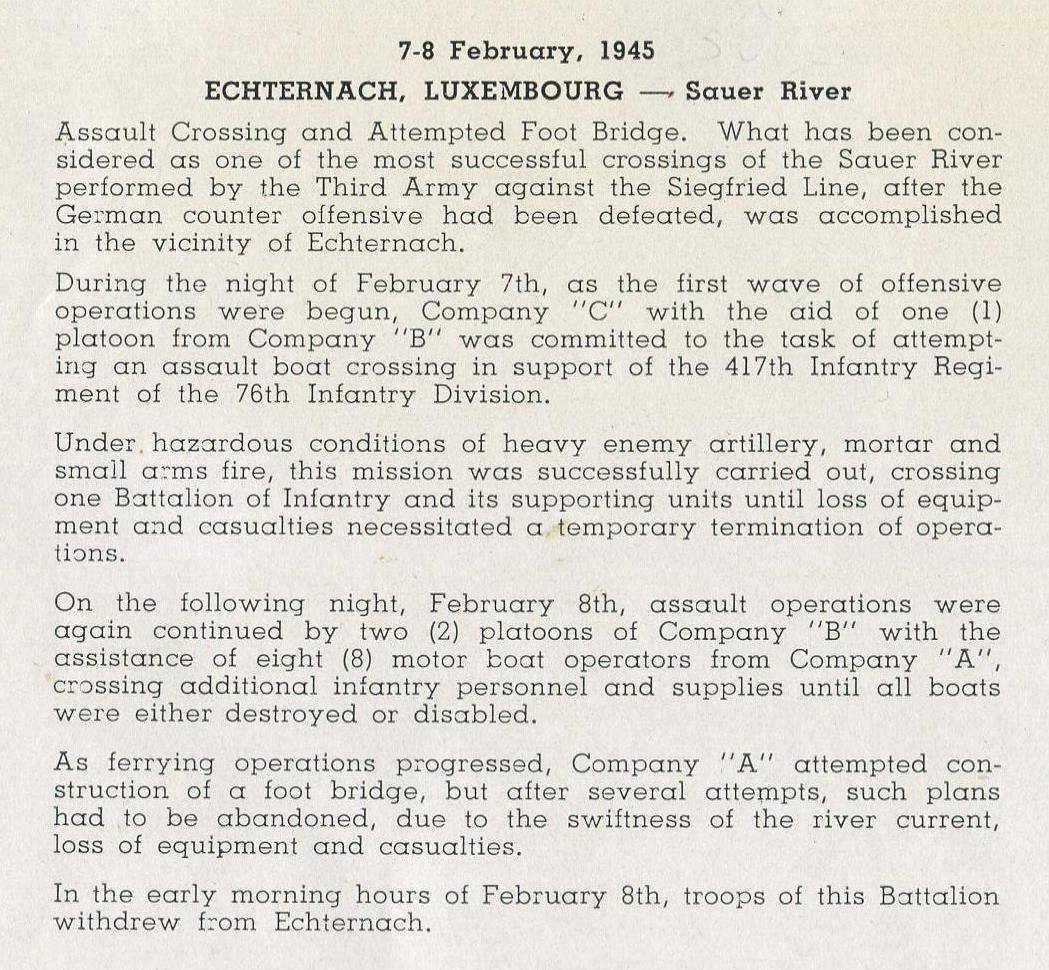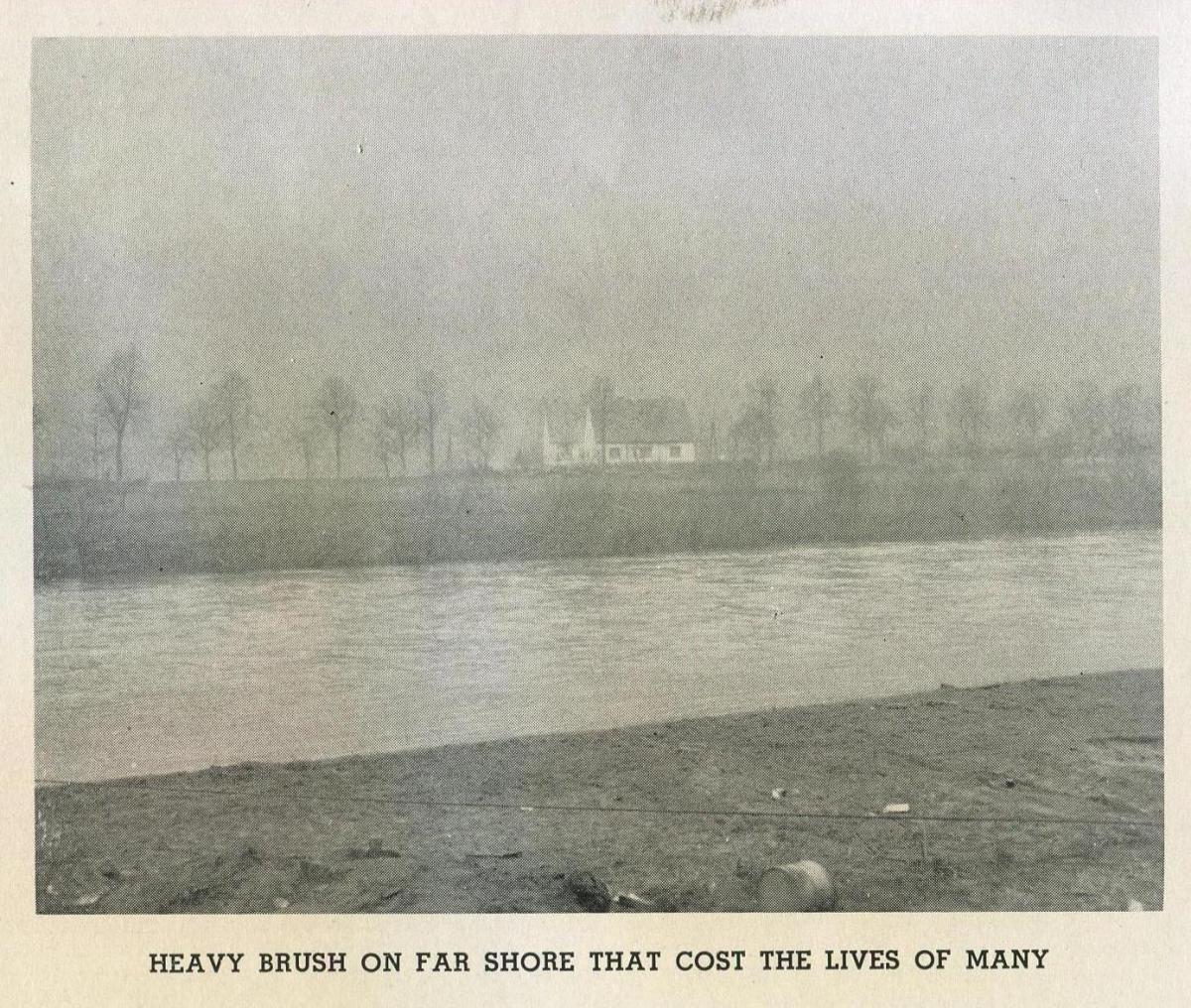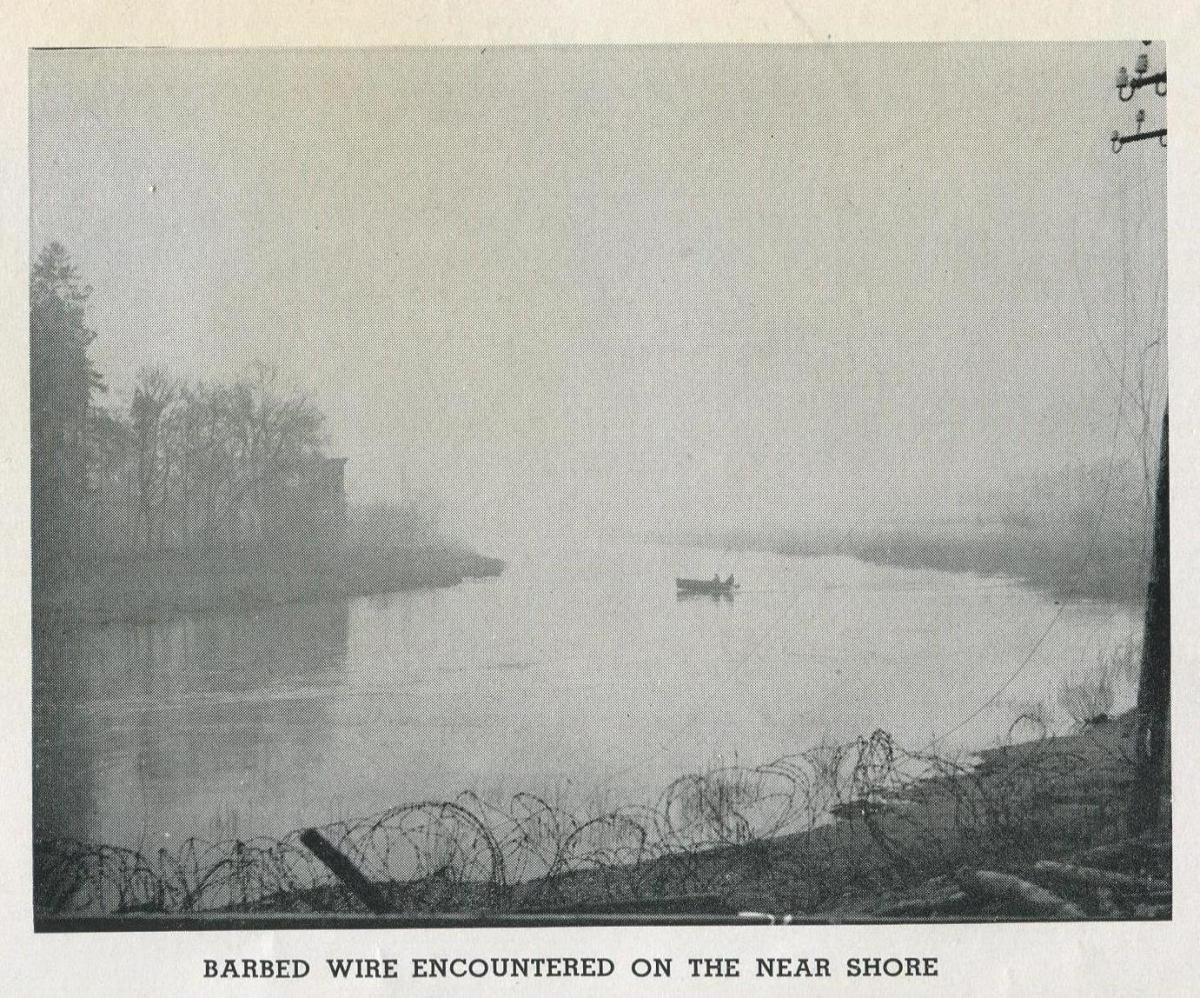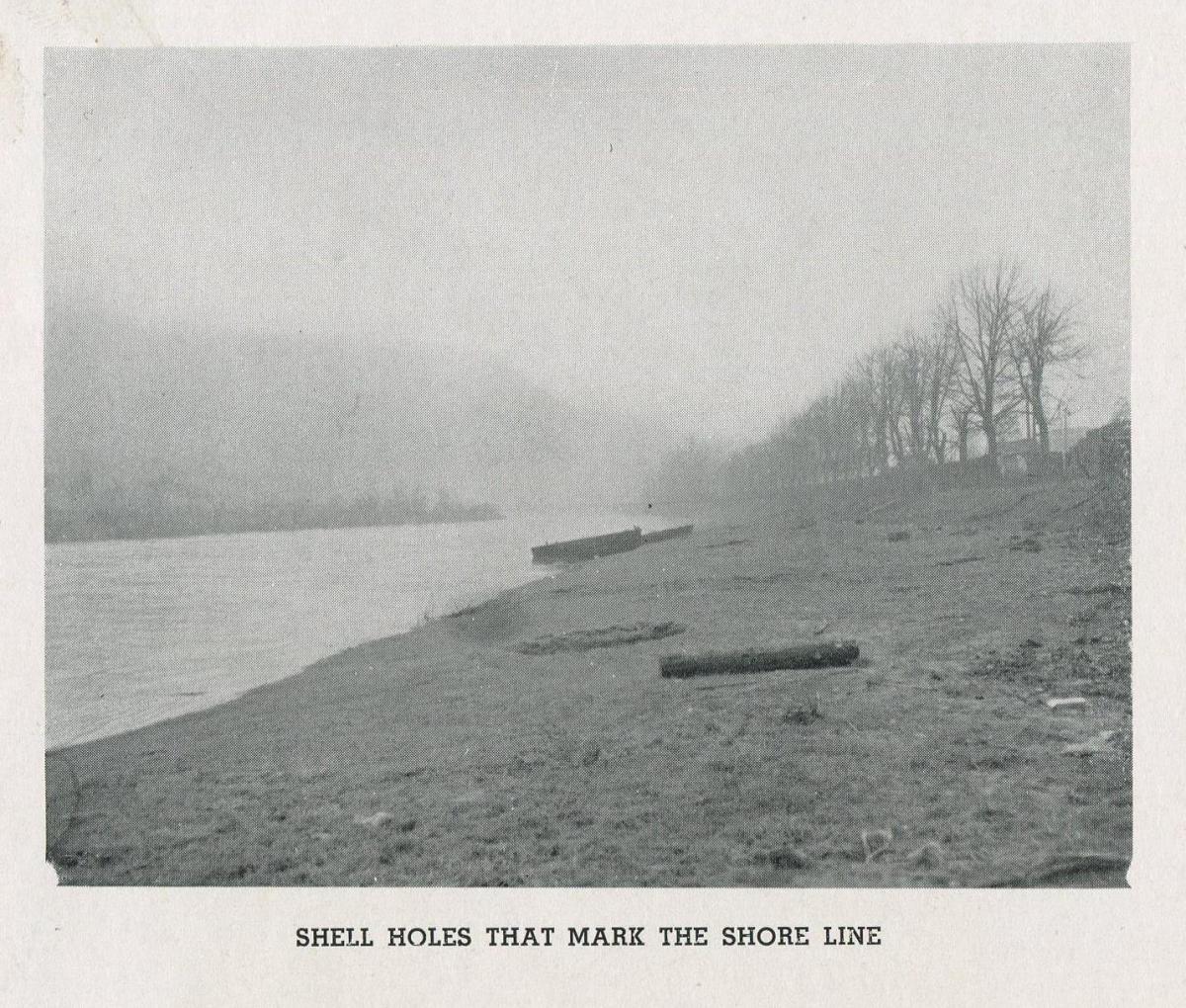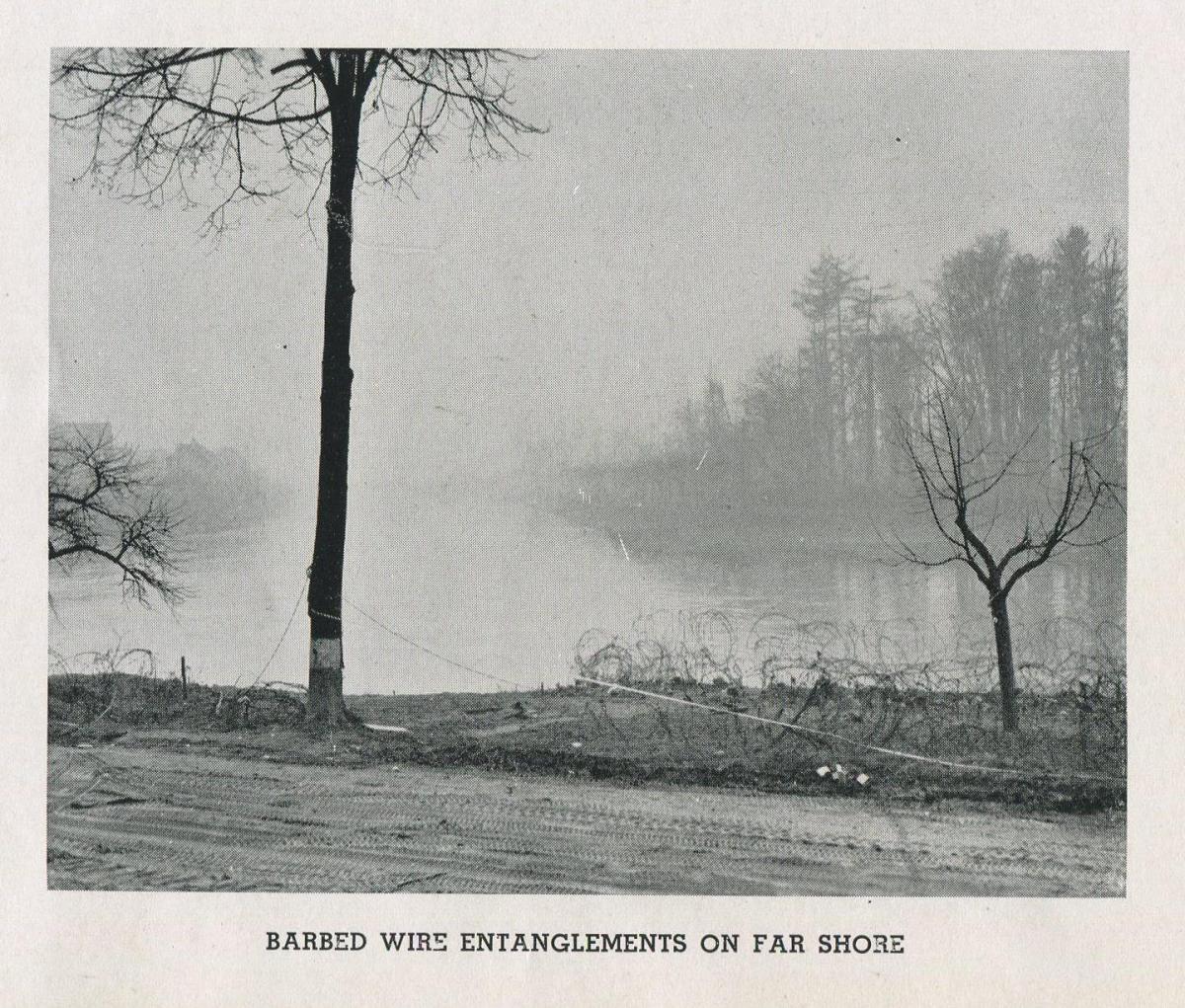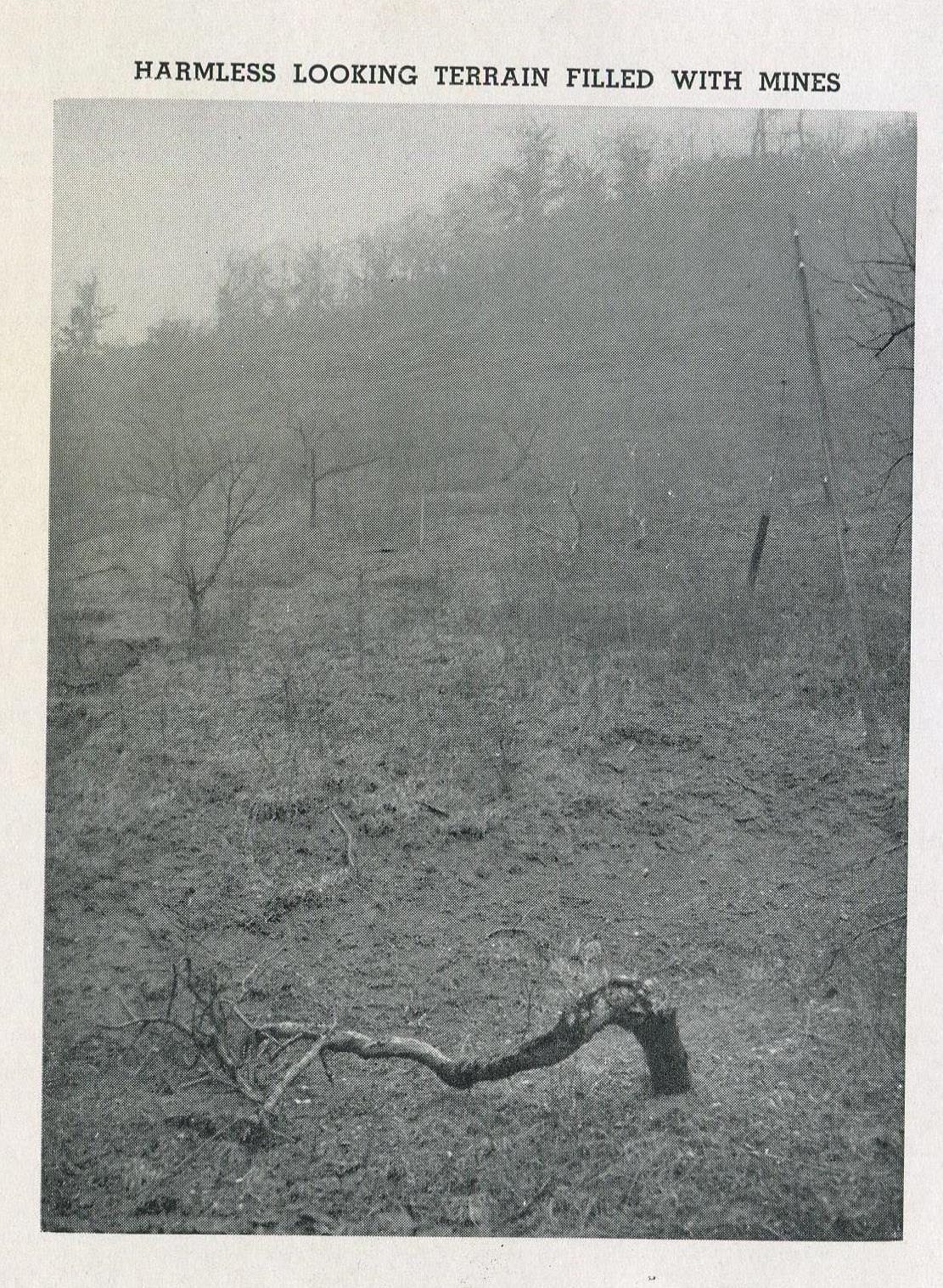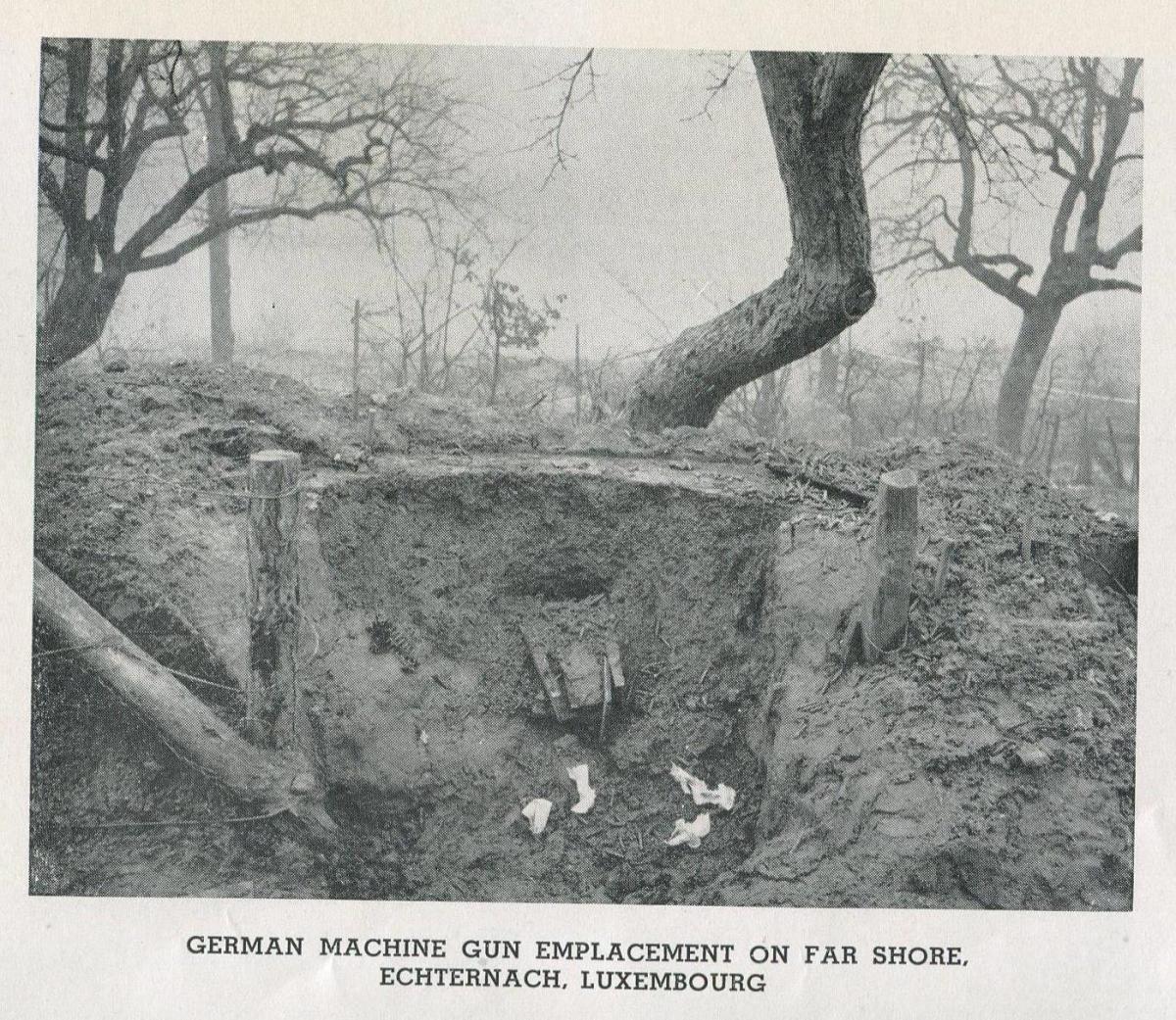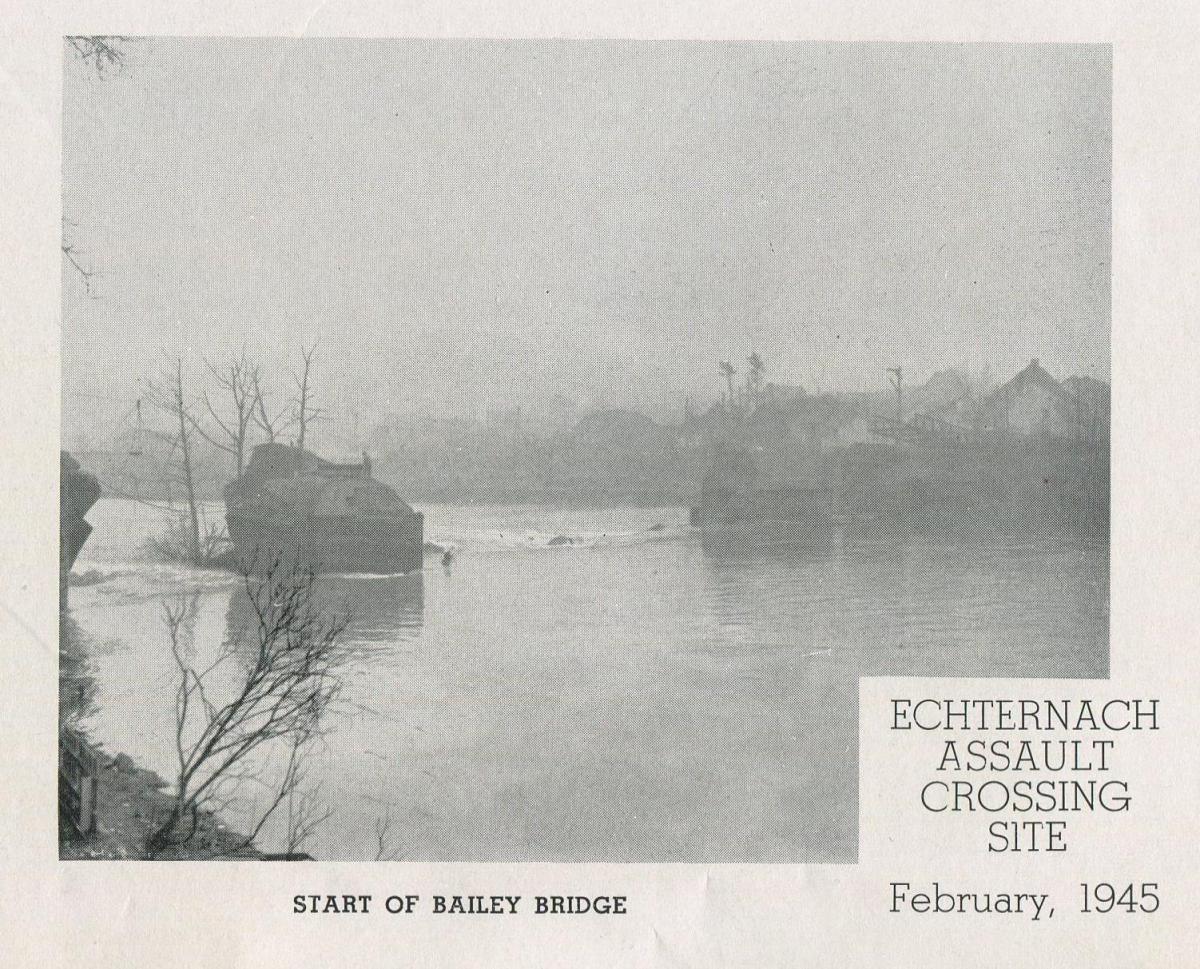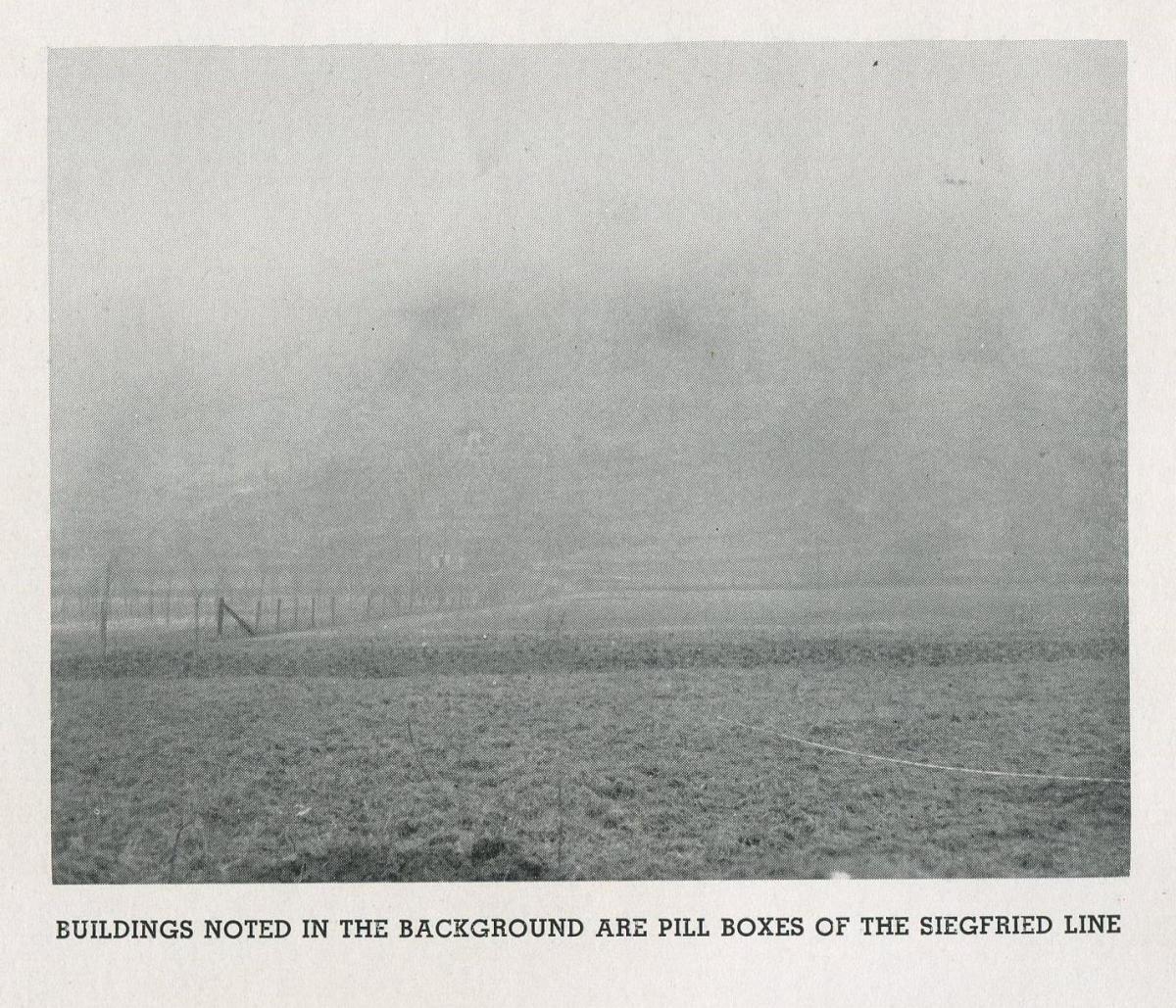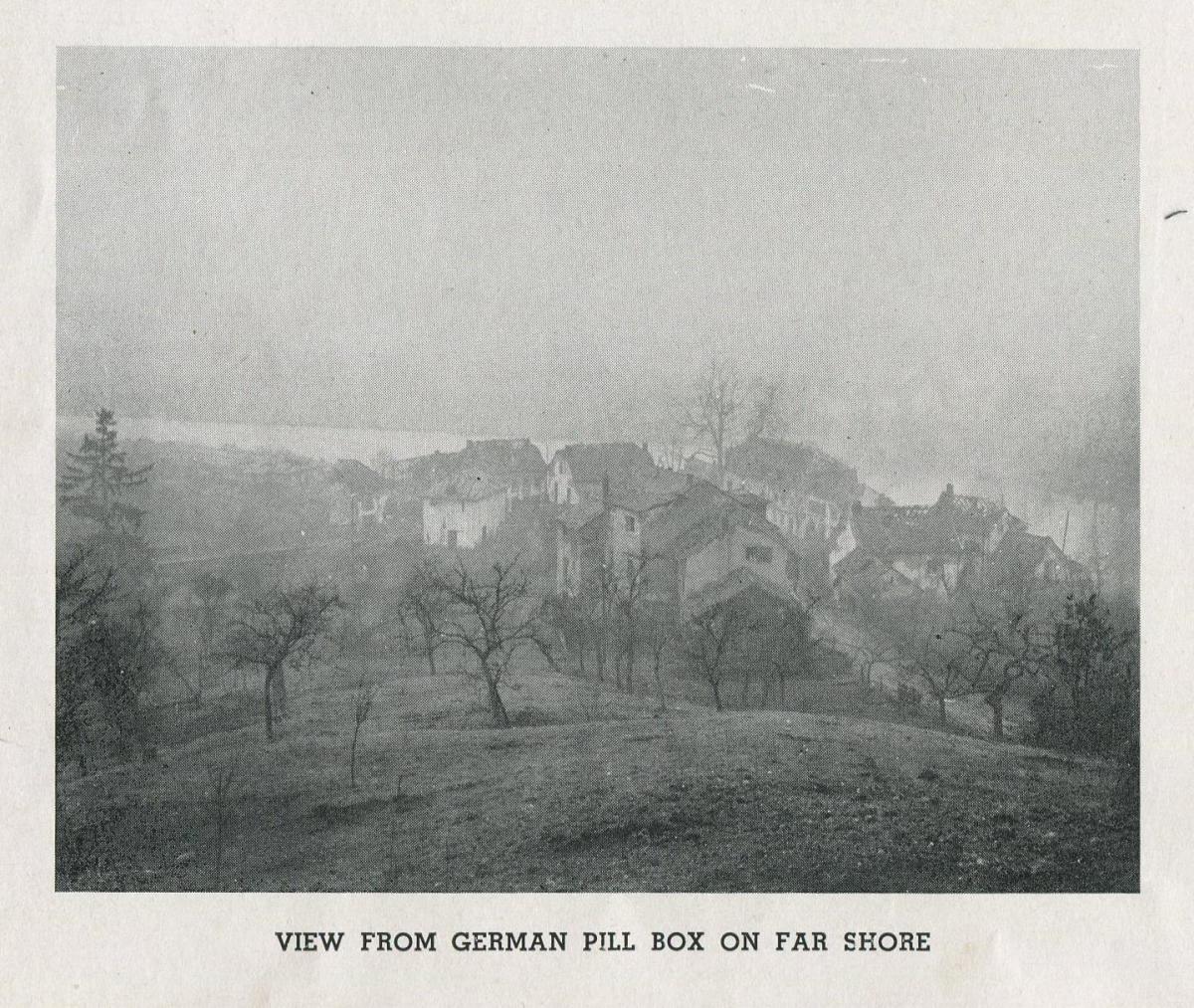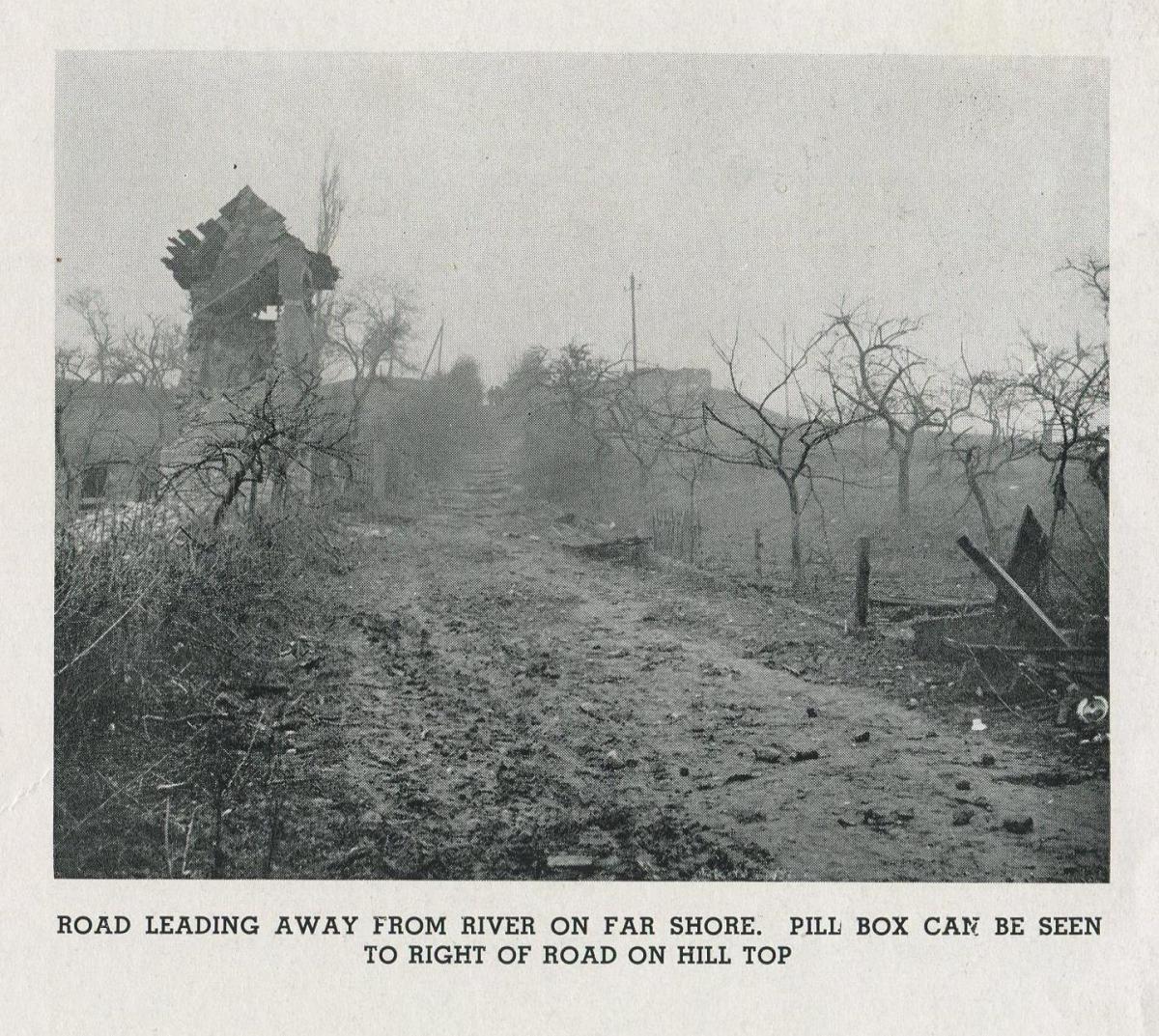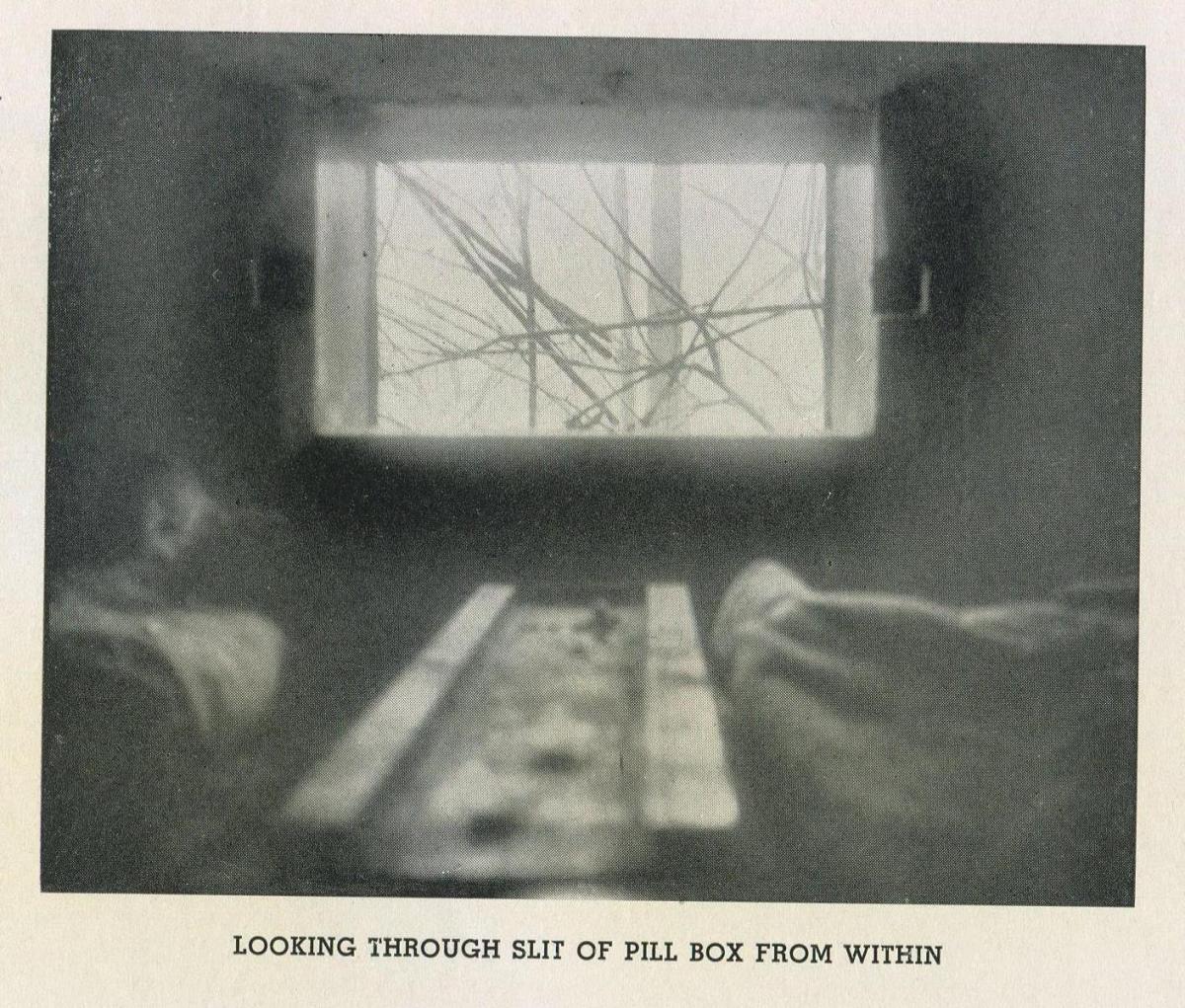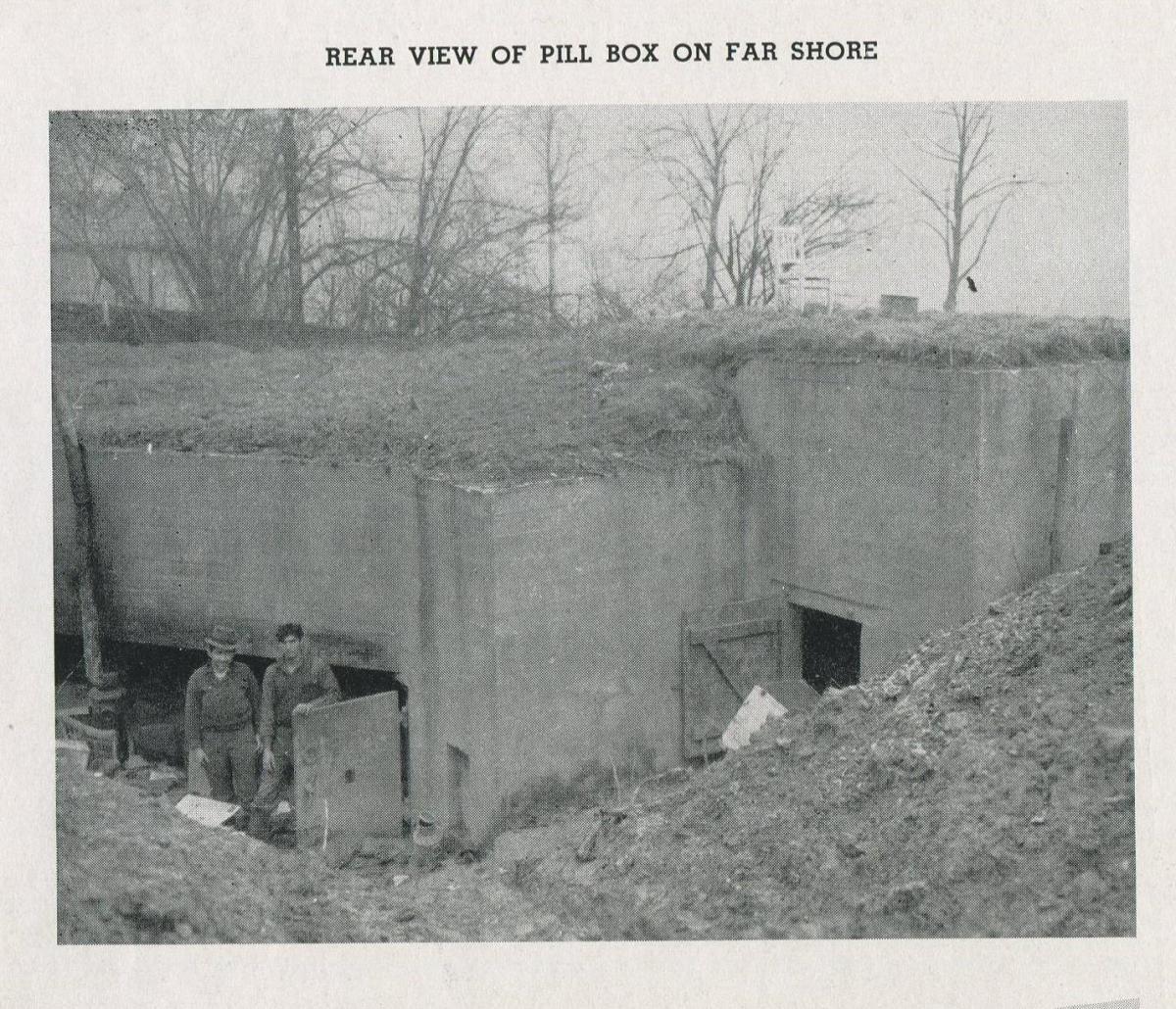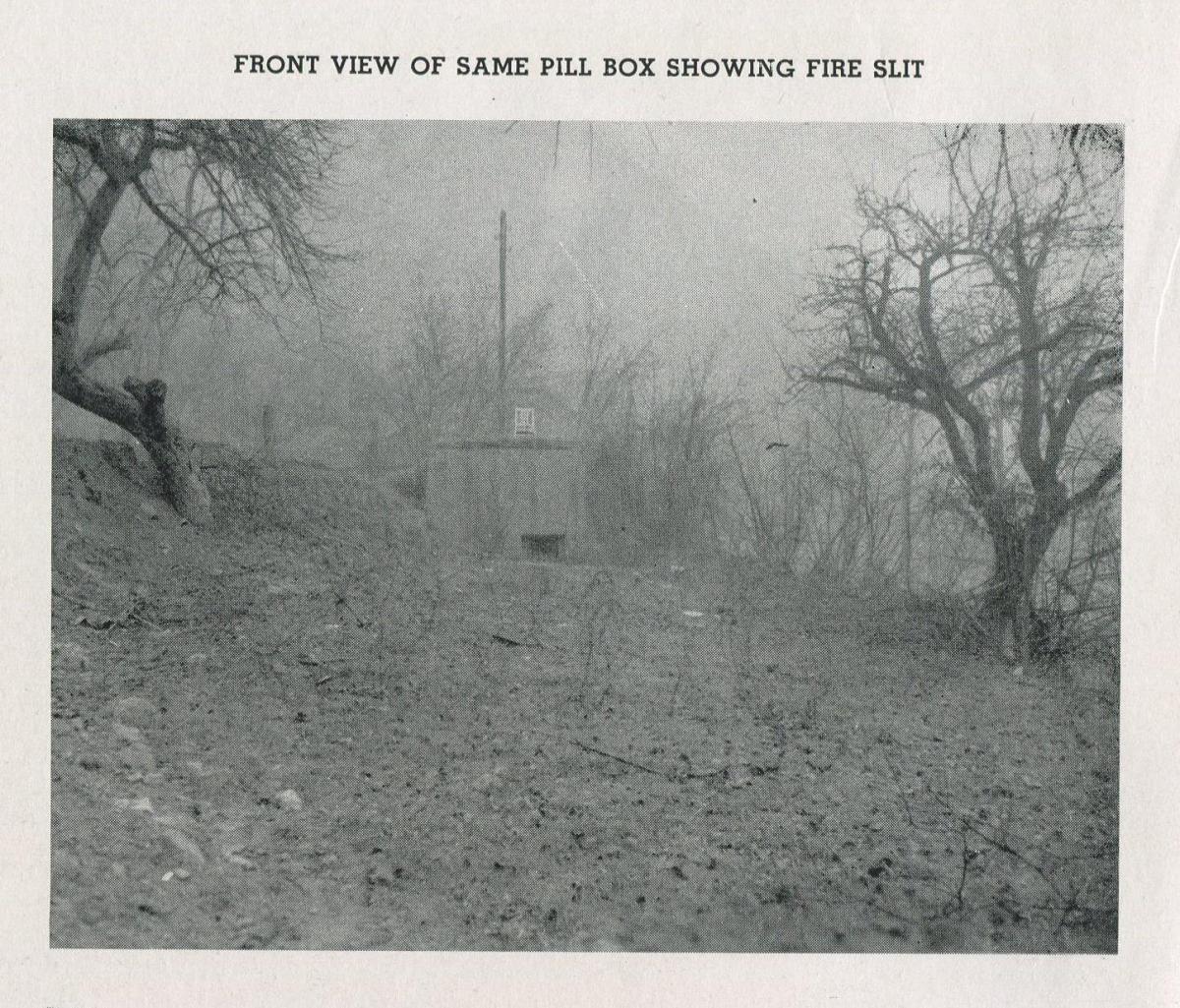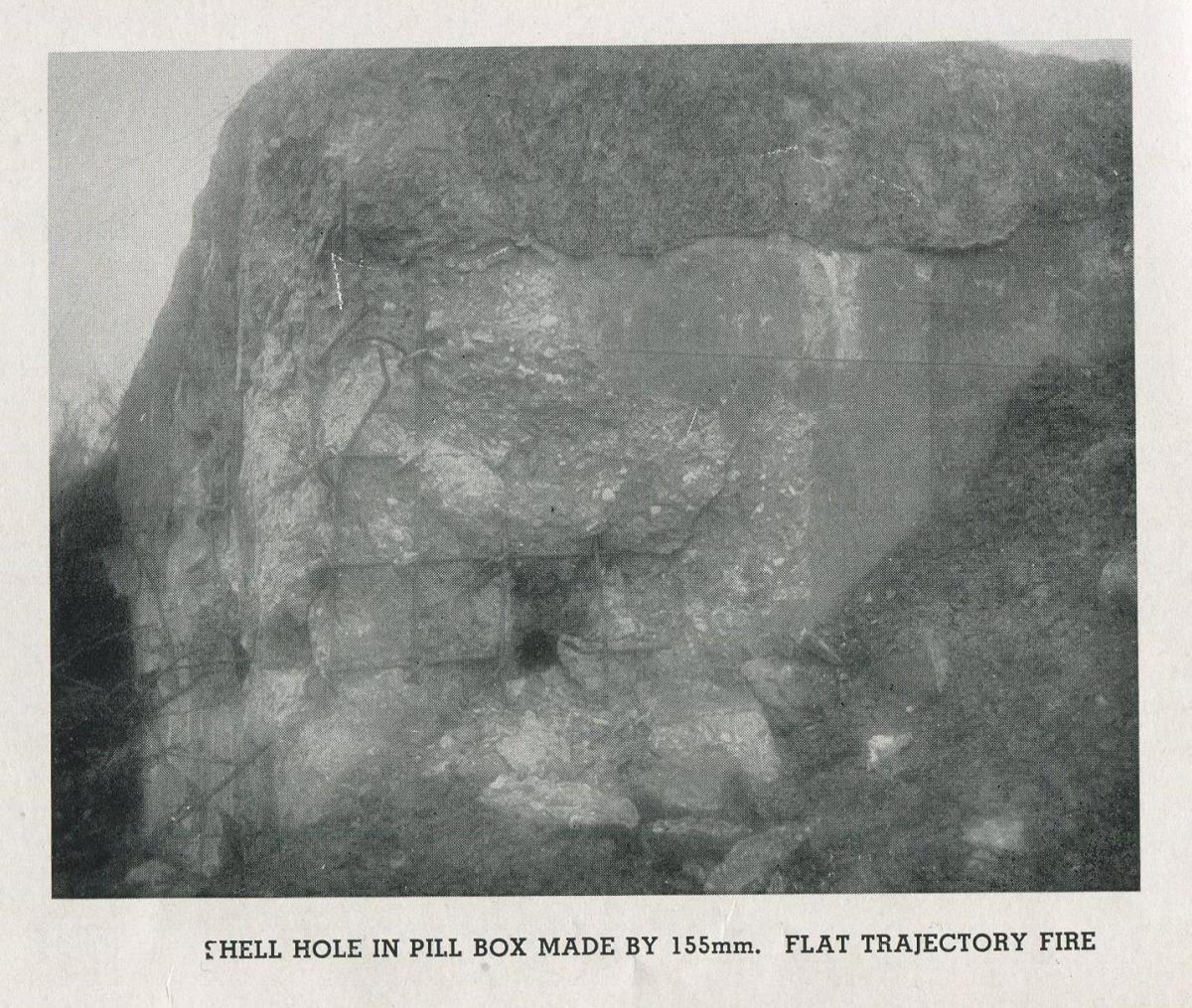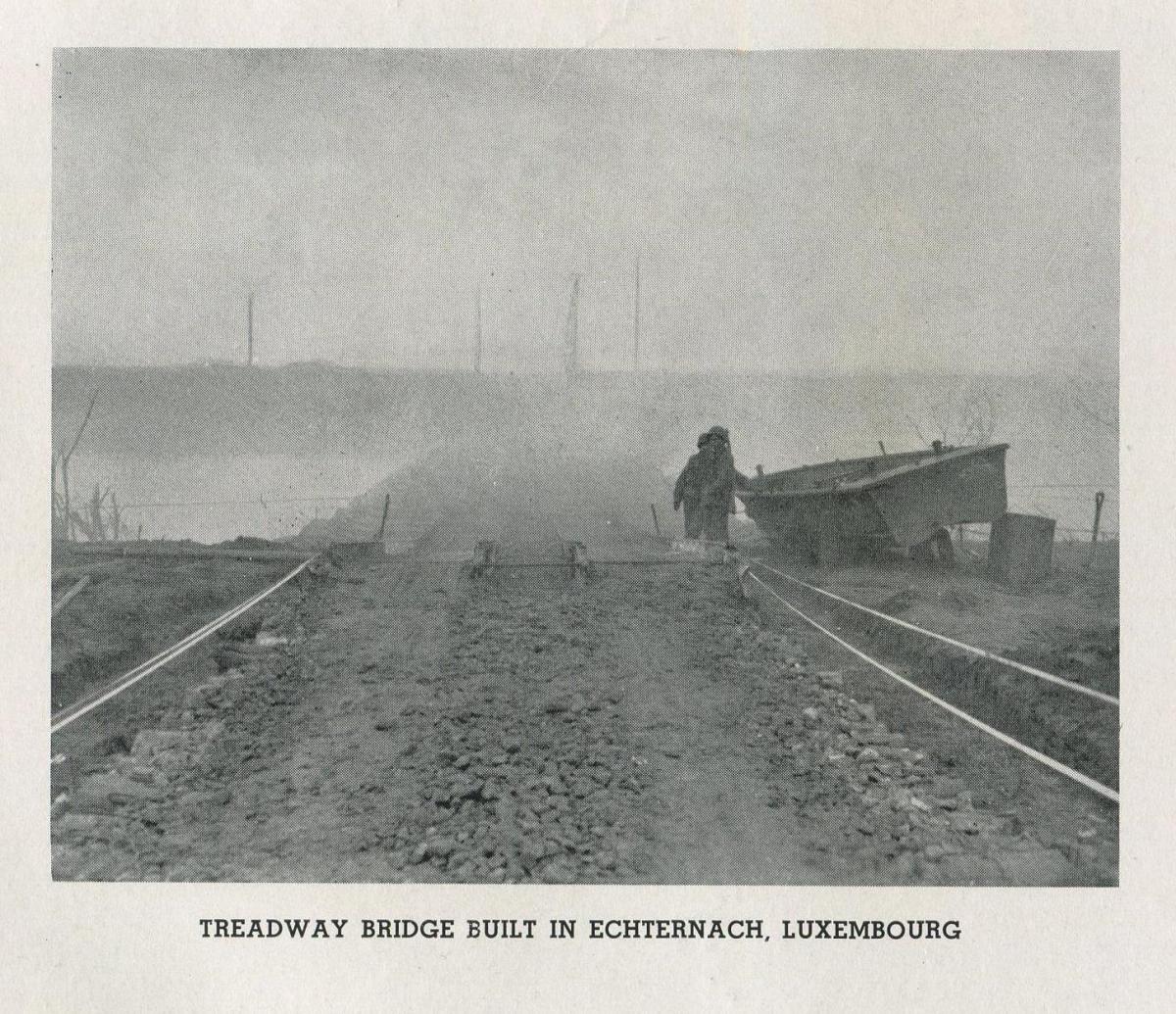Account from Edwin N. Blasingim,First Sgt., Company B, 160 Engineer Combat Battalion, as told to his son.
The Germans marched into Echternach in May of 1940, occupied the town and took vicious control of the entire country. The U.S.Army liberated most of Luxembourg and Echternach in September of 1944. In the Battle of the Bulge the Germans penetrated Echternach again and there was heavy fighting there until the Germans were pushed back across the Sure ( Sauer ) River in early January of 1945. Americans held the town now but the men thought that all of the Germans were not gone. There were still a few hiding and observing and passing what they learned to their friends across the river. Read this interesting account by Earl R. Stonefield,Sgt.,of the 160th, Company B. It is in the February 1999 issue of Bulge Bugle on page 9. His account is titled " Road Block ". Try this link. http://www.veteransofthebattleofthebulge.org/vbob/wp-content/uploads/2011/03/1999-Feb.pdf
A few days before the assault crossing preparations were being made each night. Under the cover of darkness, boats were quietly hand carried into positions north of town along the river close to their launch points. Along with materials and supplies they were hidden behind whatever cover was available so that nothing could be seen from the far side of the river. Artillery was moved close to where it would be needed and placed out of sight so that it could easily be moved into firing position.
When the assault started in the early morning hours of February 7, Dad said that about the time the boats started launching the Germans lit the place up with Flares. " It was like daytime and we were all scared".Dad said that some men were hit before they could get into their boat. German artillery started two large fires on our bank that back lit the men crossing the river. They discovered that the Germans knew a lot more about what was going on than they thought.
The helpful people at the U.S.Army Engineer History Office sent me this account, I am not sure of the author but it is from someone from the 160th. I thank them and would like to share this with anyone who is interested in our engineers.
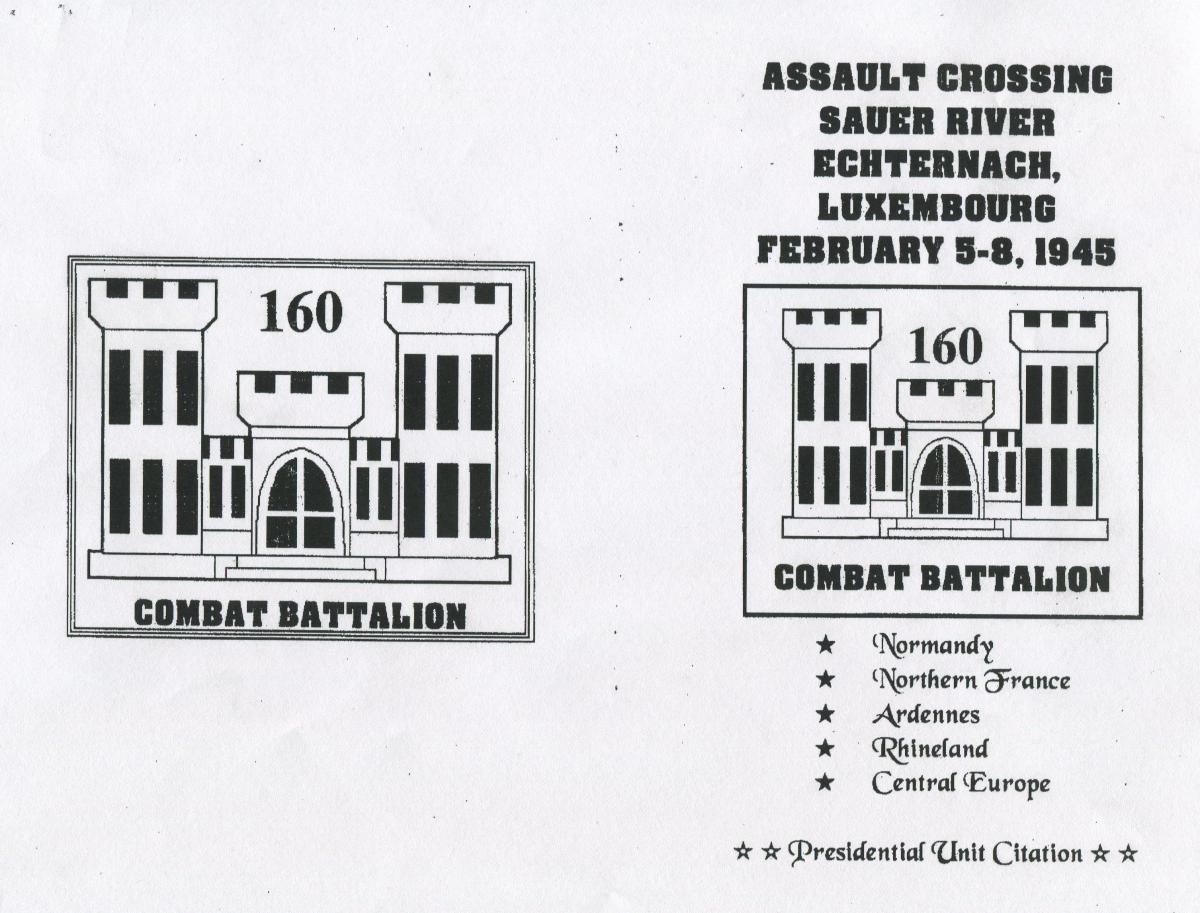
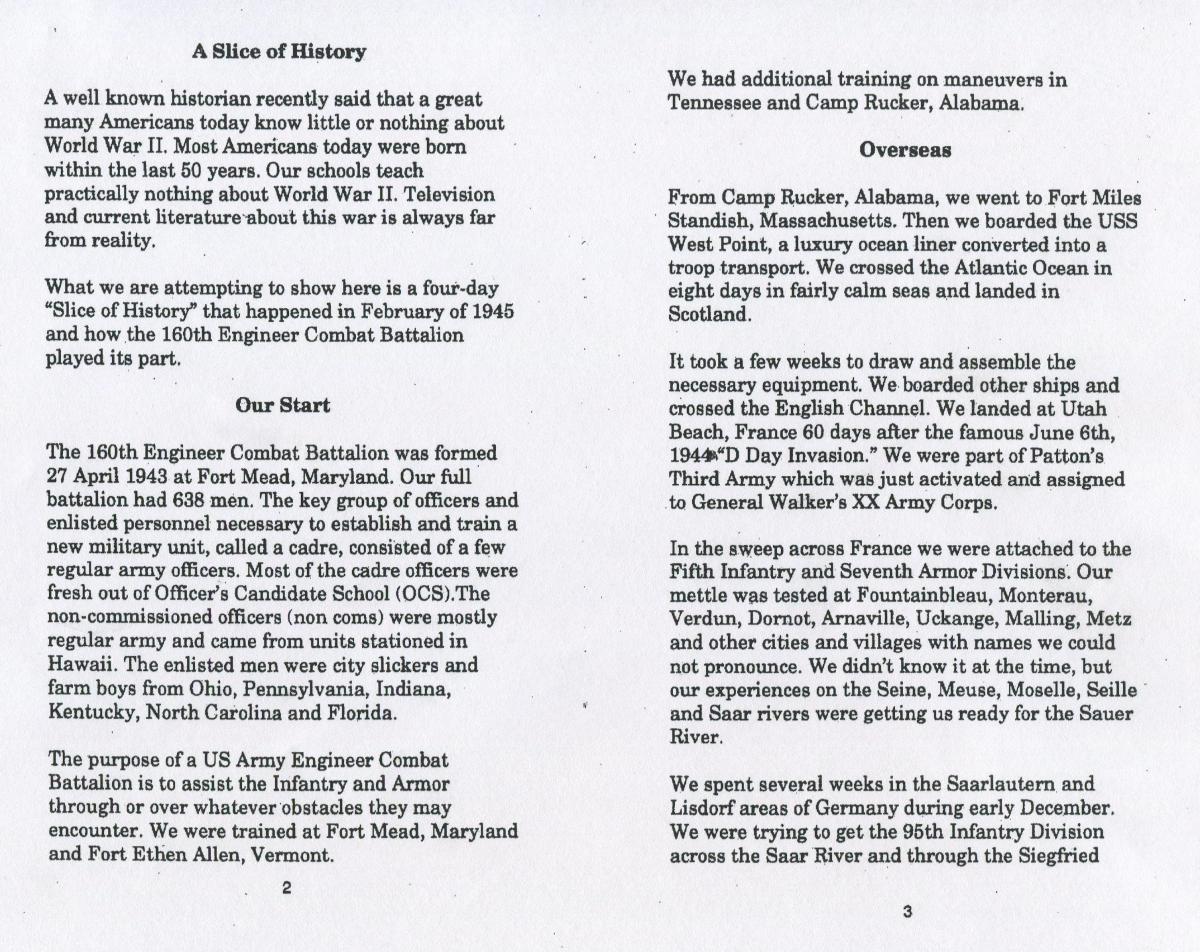
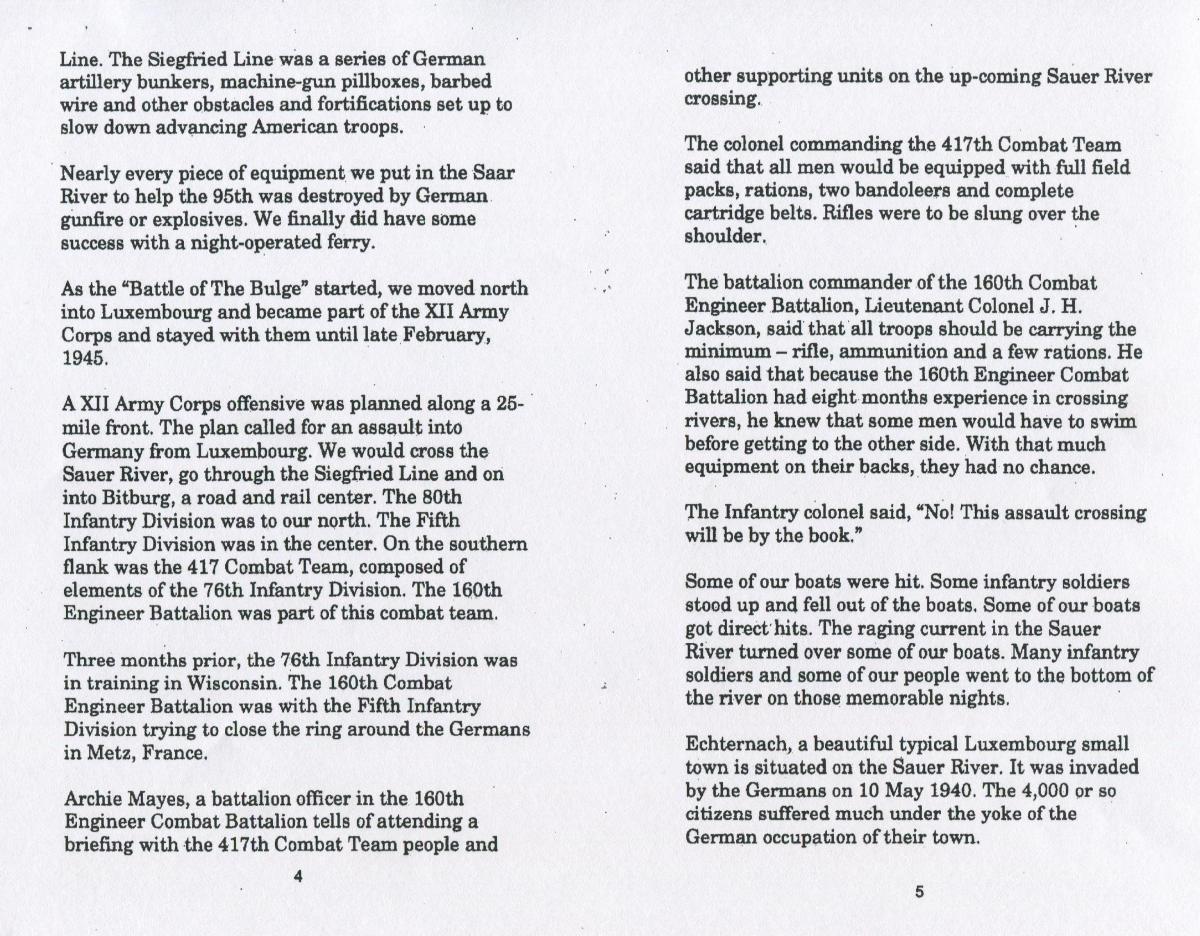
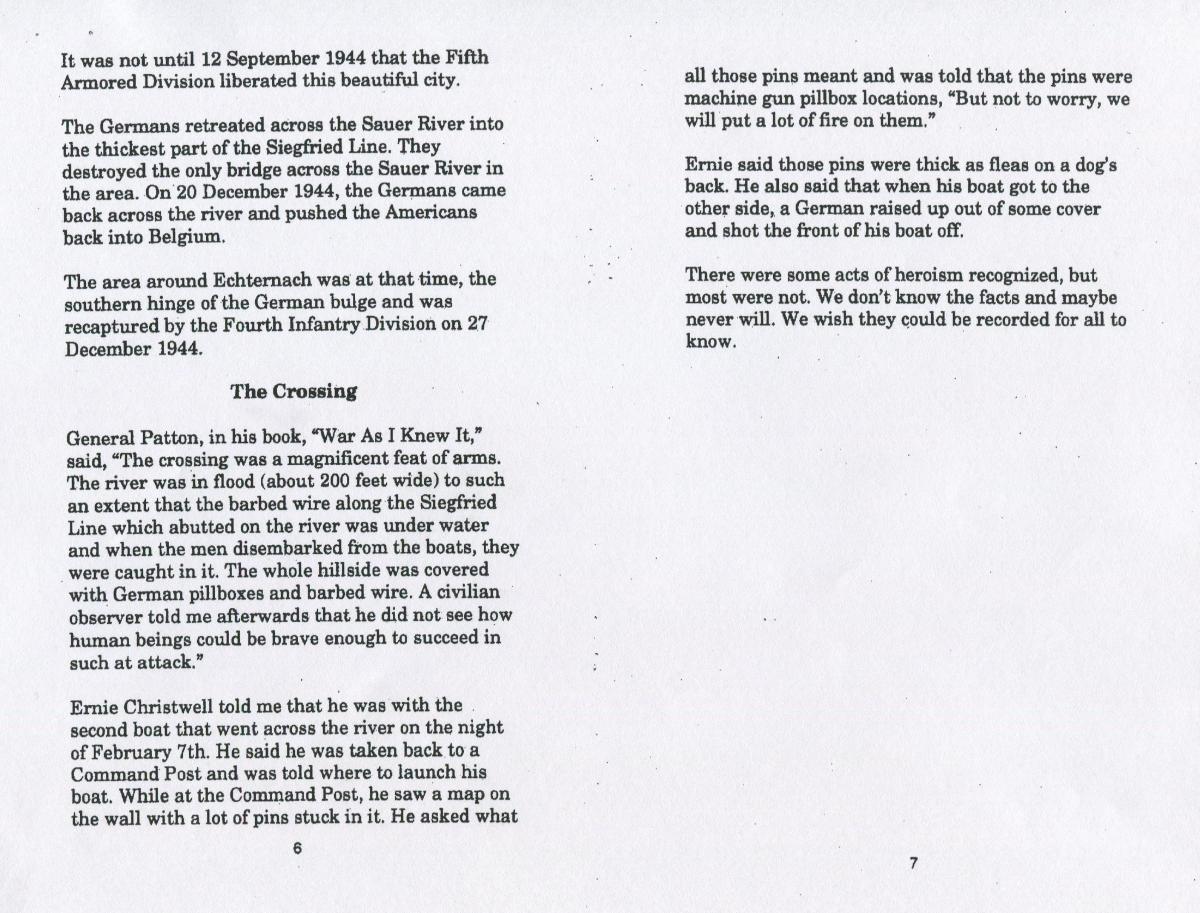

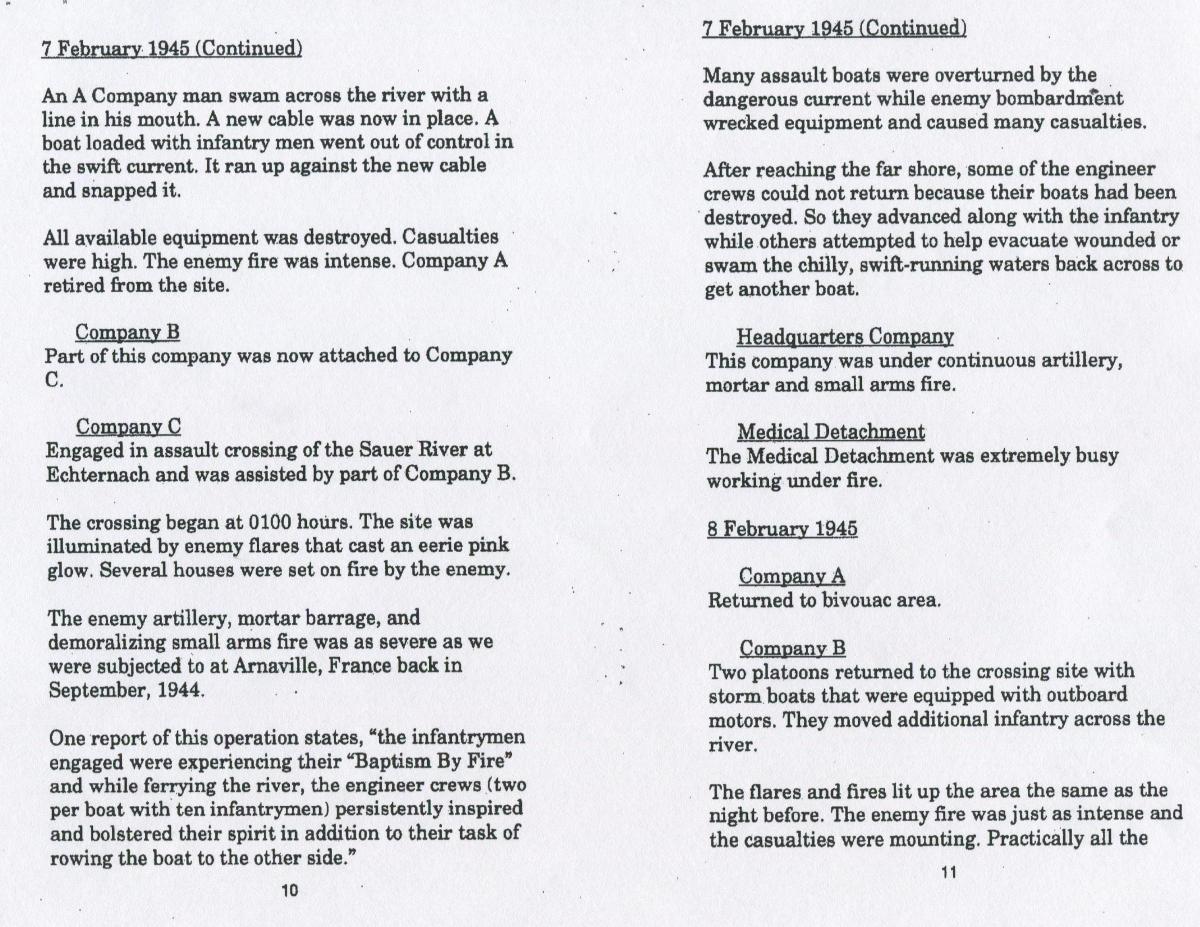
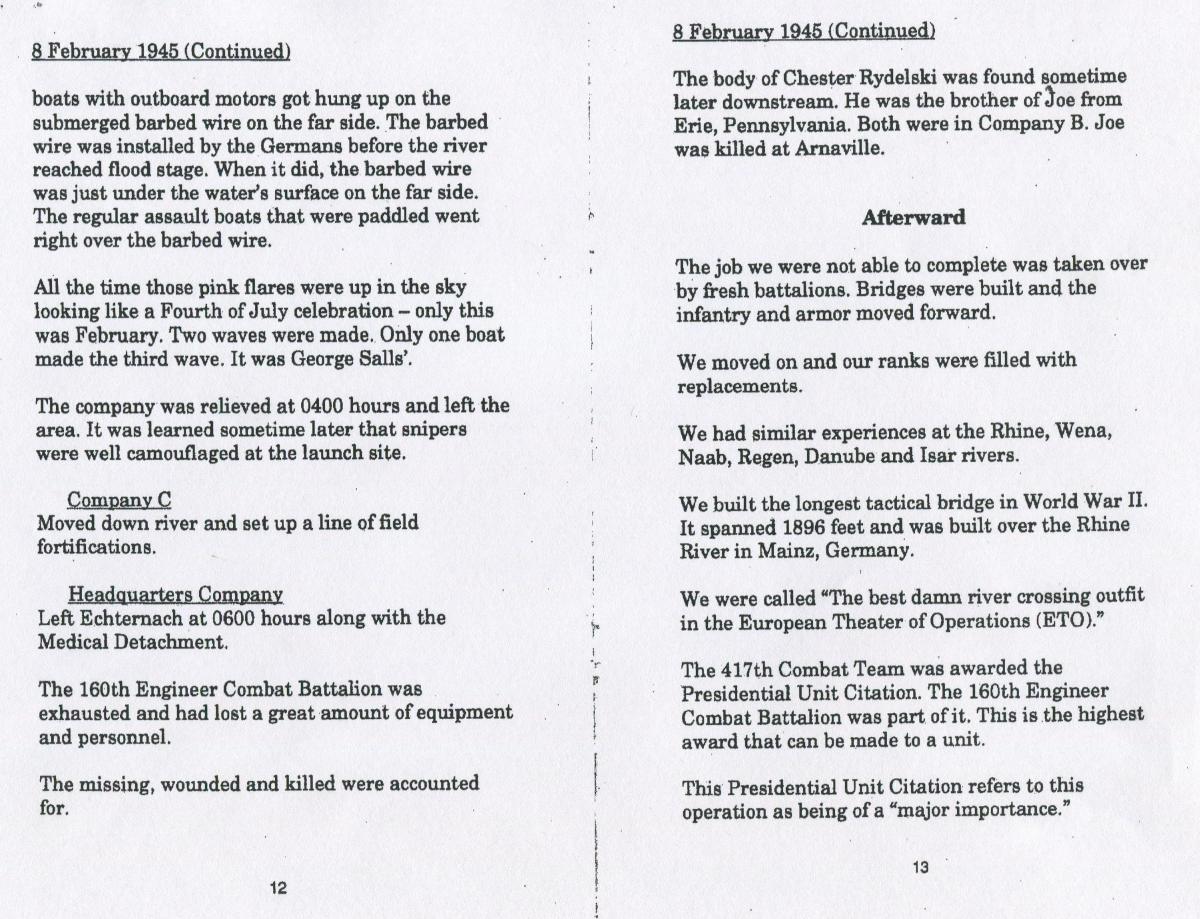
The first photograph is a picture of Echnernach and the Sure River. This view is looking east and Echternach is the town in the upper center of the view that has several spires. The first crossing point is just northwest of town.( this is a pre WW II photograph that shows the lay of the land )
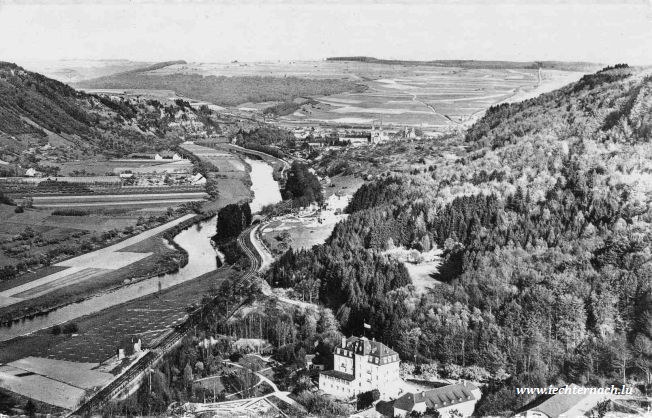
The second photograph is of Echternach before WW II.
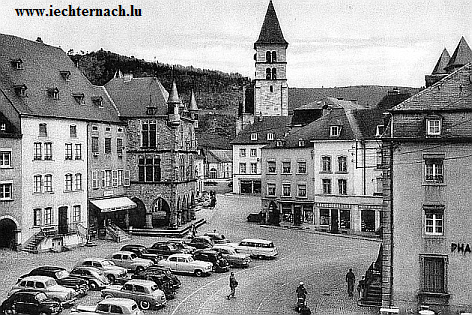
The third photograph is of Echternach while the 160th was there.
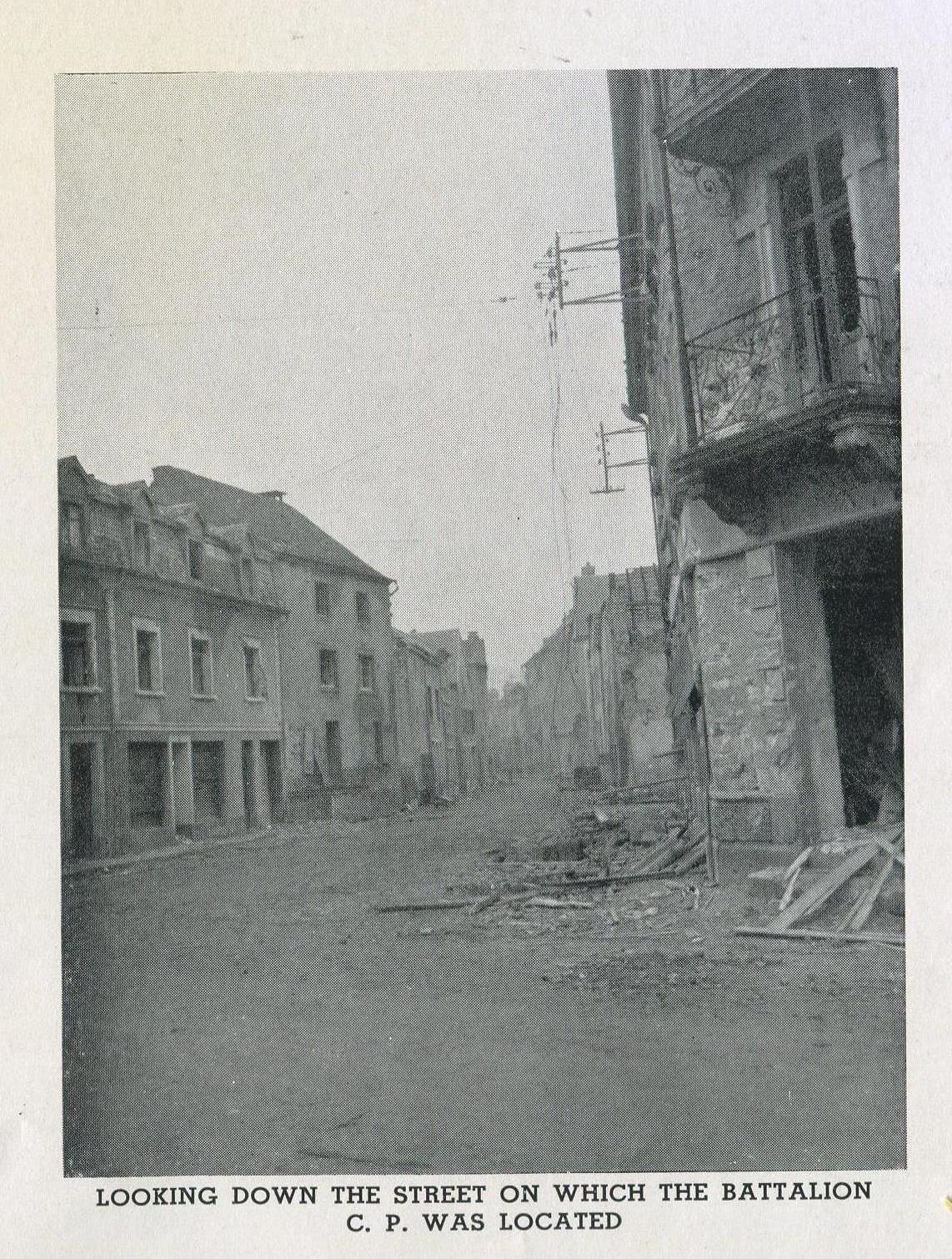
I am thrilled to see all this on our forum. Thank you again for your diligence and dedication. So many will appreciate your efforts, including ME!
Marion, thanks for the " attaboys ". I appreciate that you like this. I am grateful to be a member of your forum where these posts get viewed by so many interested people. The 160th posts we have made have been viewed over a thousand times since last fall. I do wish that someone from the 160th or someone who has a relative or friend who served with them and reads this would contact us. Maybe they have something to add, a picture or a memory. That would make my day.
Glen Blasingim
My thoughts exactly! Proof this week elsewhere on the forum, where a member resumed posting after numerous years. Every time this happens, it brings me so much joy and hope. Things come full circle and you never know when and if it may happen.
From everything I can read, my Dad who was on the shore of the Sure river at Echternach on February 7 and 8, 1945, should have been able to wear the Distinguished Unit ribbon. Everything I read says that each member of the unit is entitled to wear it if he was in the unit at the time of the award and can continue to wear it after he leaves the unit. I have never seen it and my Dad does not know anything about it. Dad's medals have been replaced and it could have been in the originals but he did not receive it with the replacements. He was in 160 ECB, Company B. Does this document authorize wearing of that ribbon?
Glen Blasingim
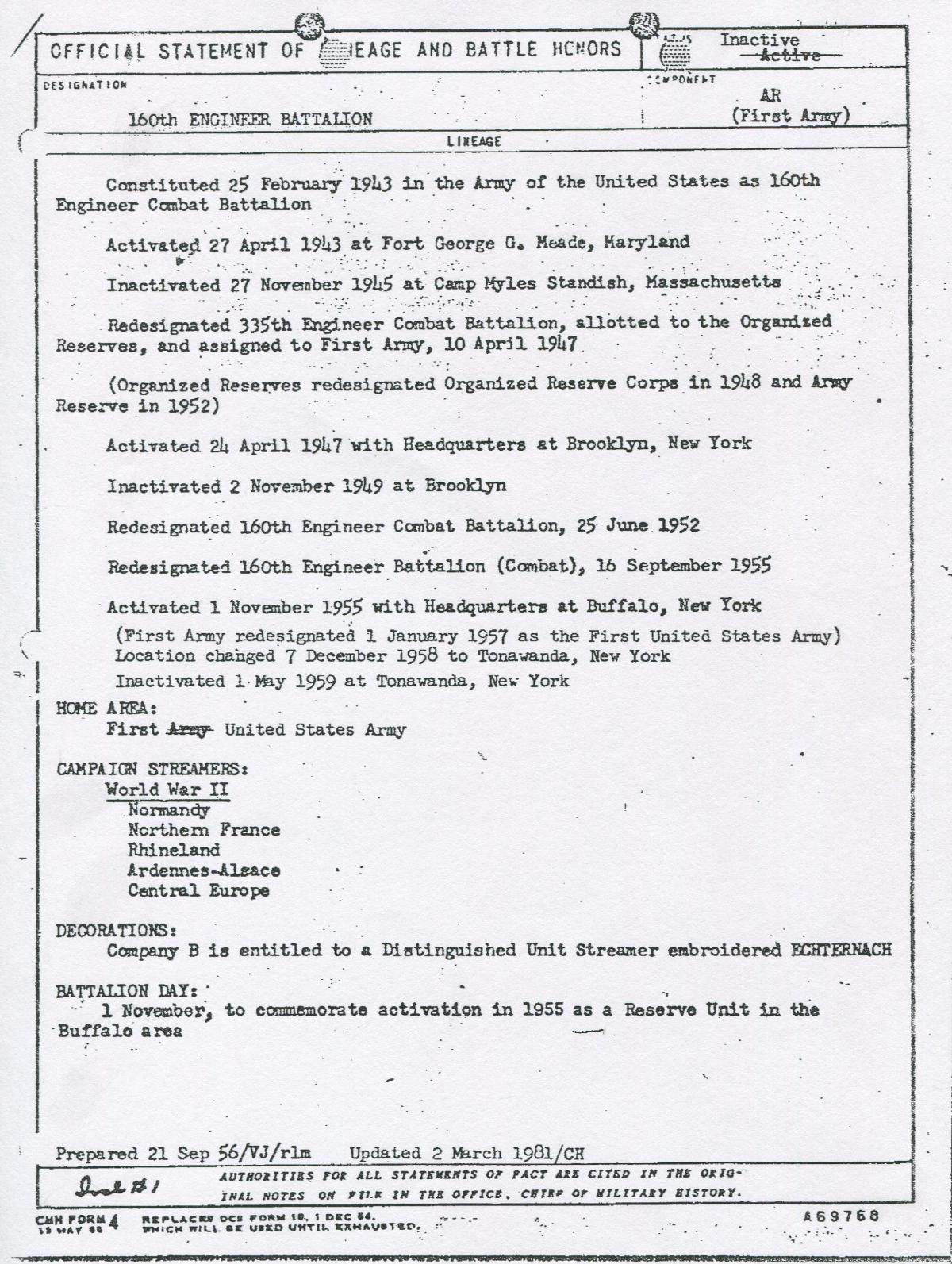
Marion, I always appreciate it when I see that you guys have helped someone out but I especially appreciate it when it's me. Thanks, again.
Glen Blasingim
Oscar G. Anderson, Tec 5, fought with the 160 Engineer Combat Battalion, Company B in France, Luxembourg, Germany and Austria in 1944 and 1945. He fought in the Battle of the Bulge that winter. Like all Combat Engineers, he did whatever he was ordered to do but his official duty was operating a utility truck. His truck was like a weapons carrier and carried tools for use by the engineers to make equipment repairs in the field. He worked with supply and brought needed parts to men in his company. In the performance of his duties he interacted with most of the men in B Company and many others. O.G. was very sociable and had a likable personality, " a real talker " as Dad would say.
O.G. called his wife Lucille " 'Cille " and she affectionately called him " Red " for his light reddish hair. Lucille was a great cook and every few days she sent a batch of homemade goodies to her sweetheart. O.G. would always share them with Dad and O.G.'s other buddies. Dad always sent his compliments to the cook.
O.G. was the only friend from the 160th that Dad socialized with after they came home from the war. My Mom and Dad visited O.G. and Lucille in their home in Indianapolis, Indiana and O.G. and Lucille visited them at our home in Florida. When they visited Mom and Dad they sat at the dining room table and talked and drank coffee until the wee hours.
In the 1960s Dad met O.G. and Lucille at a cabin on Lake Harris in Florida for a couple of days of fishing. O.G. and Dad fished and talked together for two days. I would love to have a recording of those " war stories".
O.G. retired from the city of Indianapolis and started a fishing reel repair business on his property, more of a labor of love and a means of socializing than a way to produce income. He ran that business until he passed away some years ago. O.G. was awarded the Purple Heart and the Bronze Star during his service to his country. He was a good friend of Dad's and Dad has not forgotten O.G., he still tells me about his old friend.
O.G. at Fort Ethan Allen
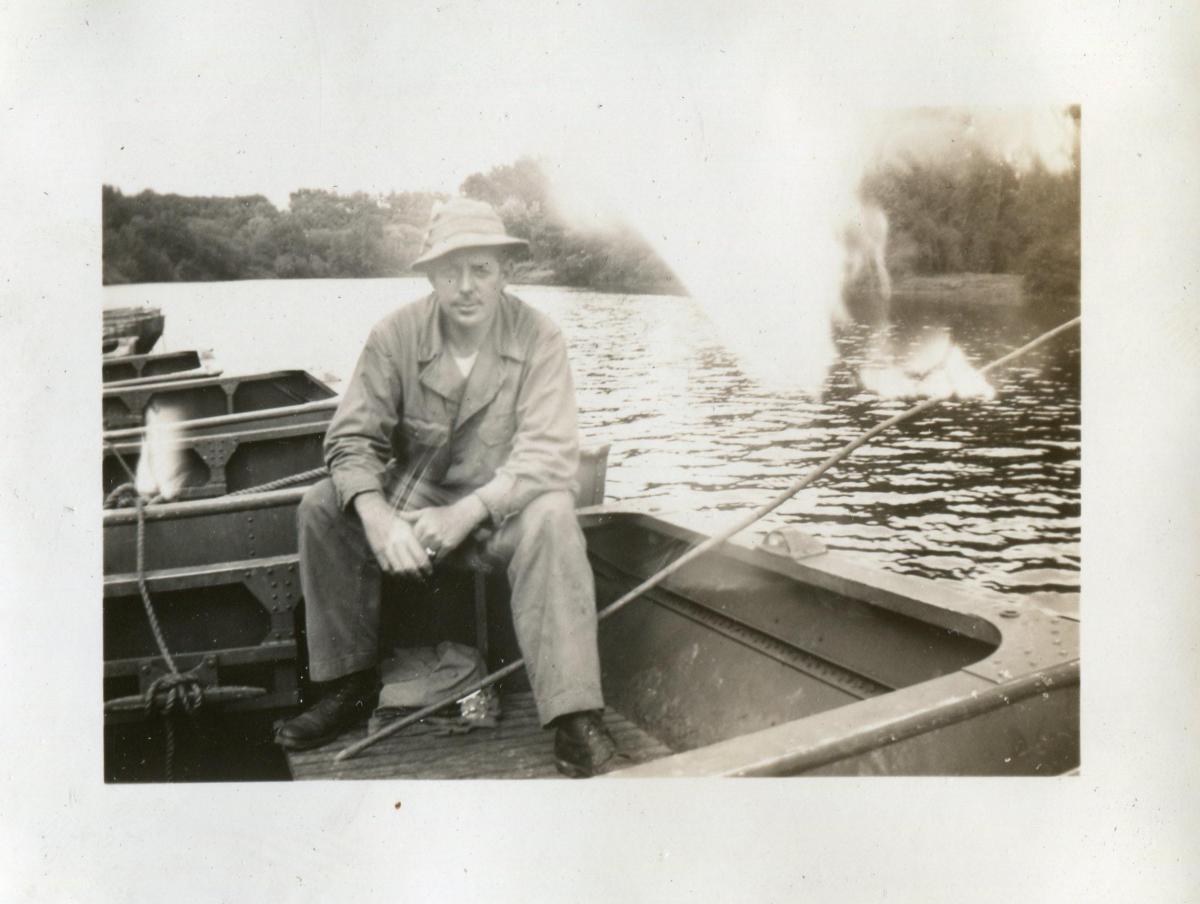
O.G. at Mainz, Germany
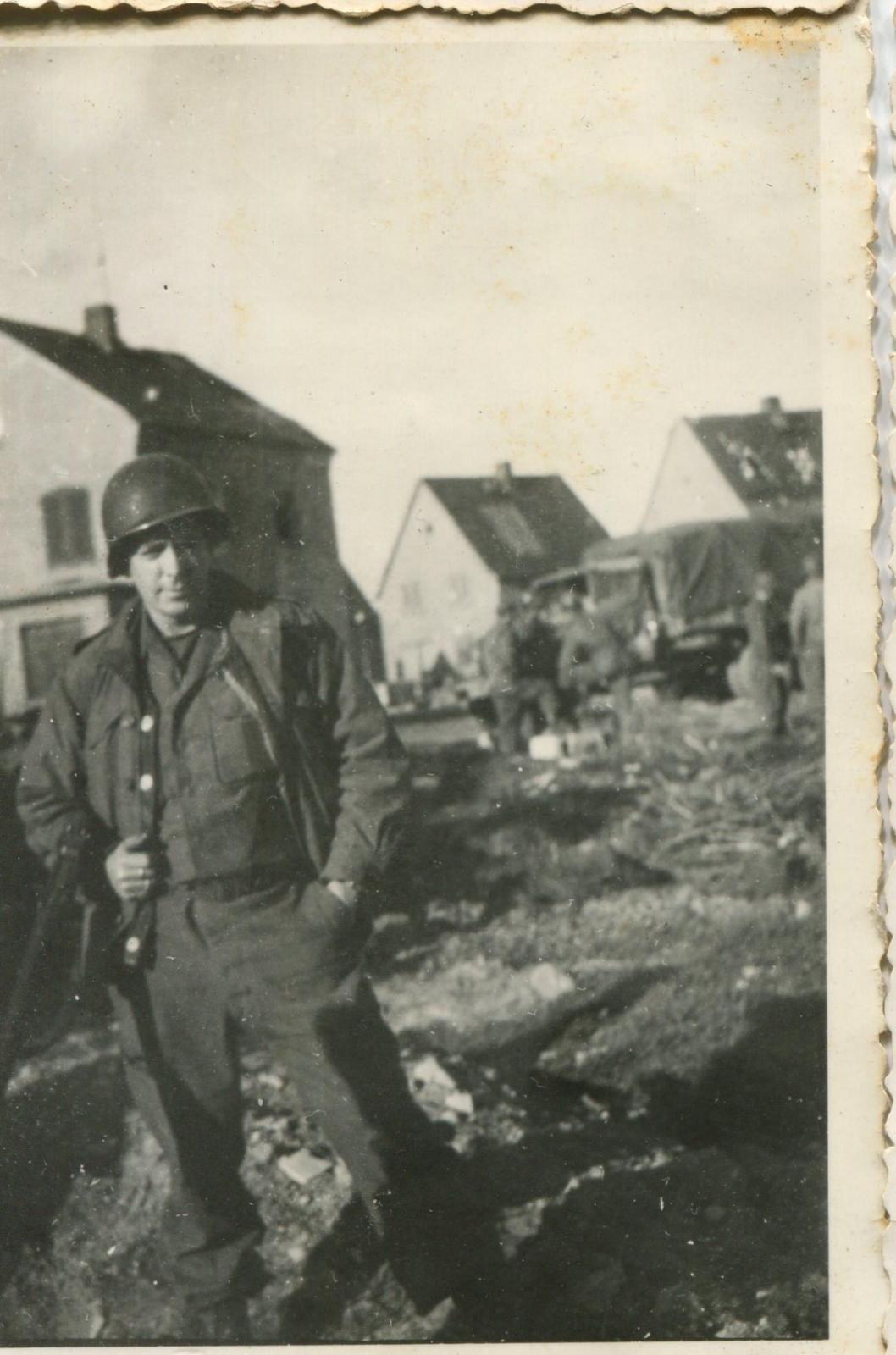
O.G. at Reims, France on the way home
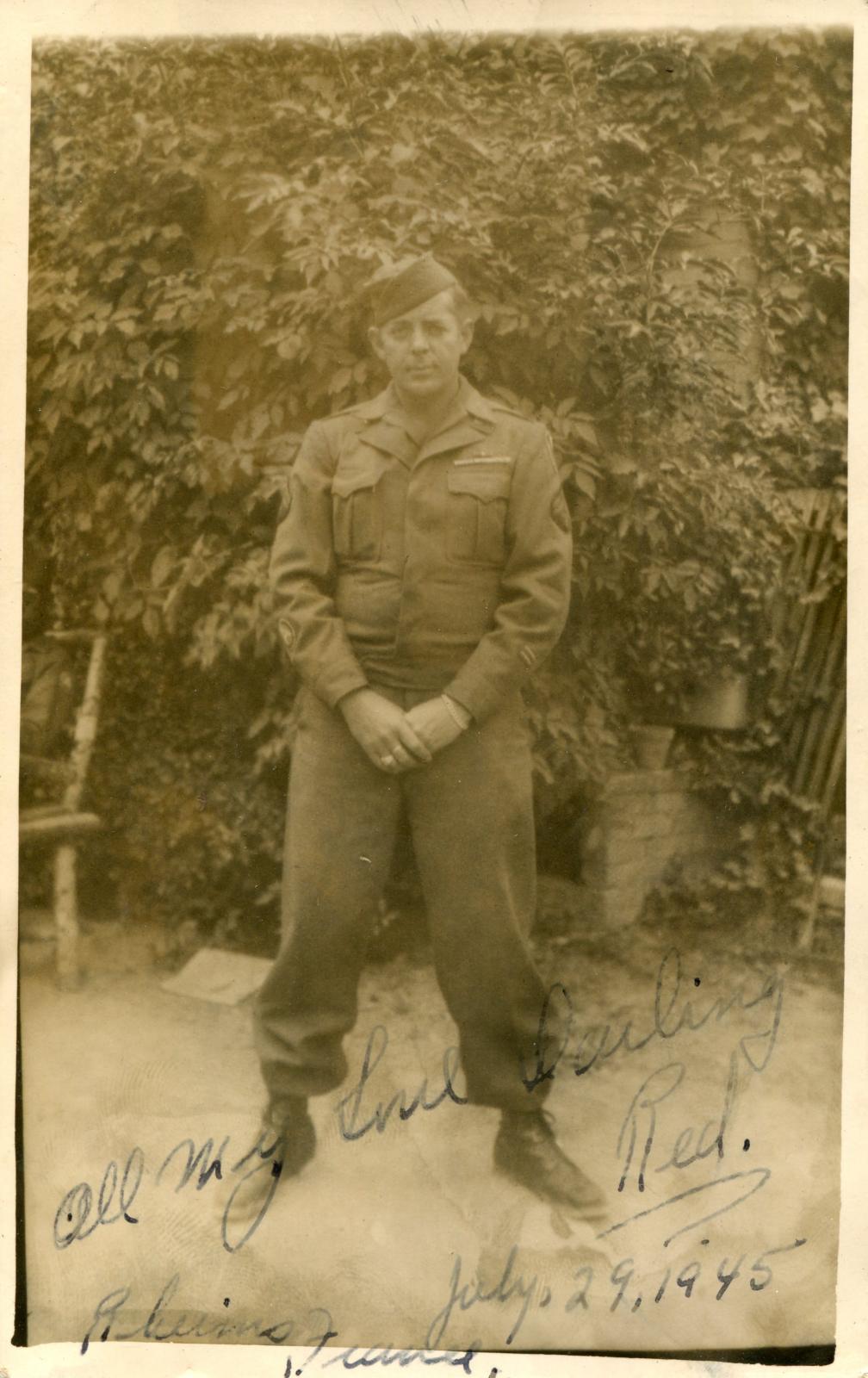
O.G. about time of discharge
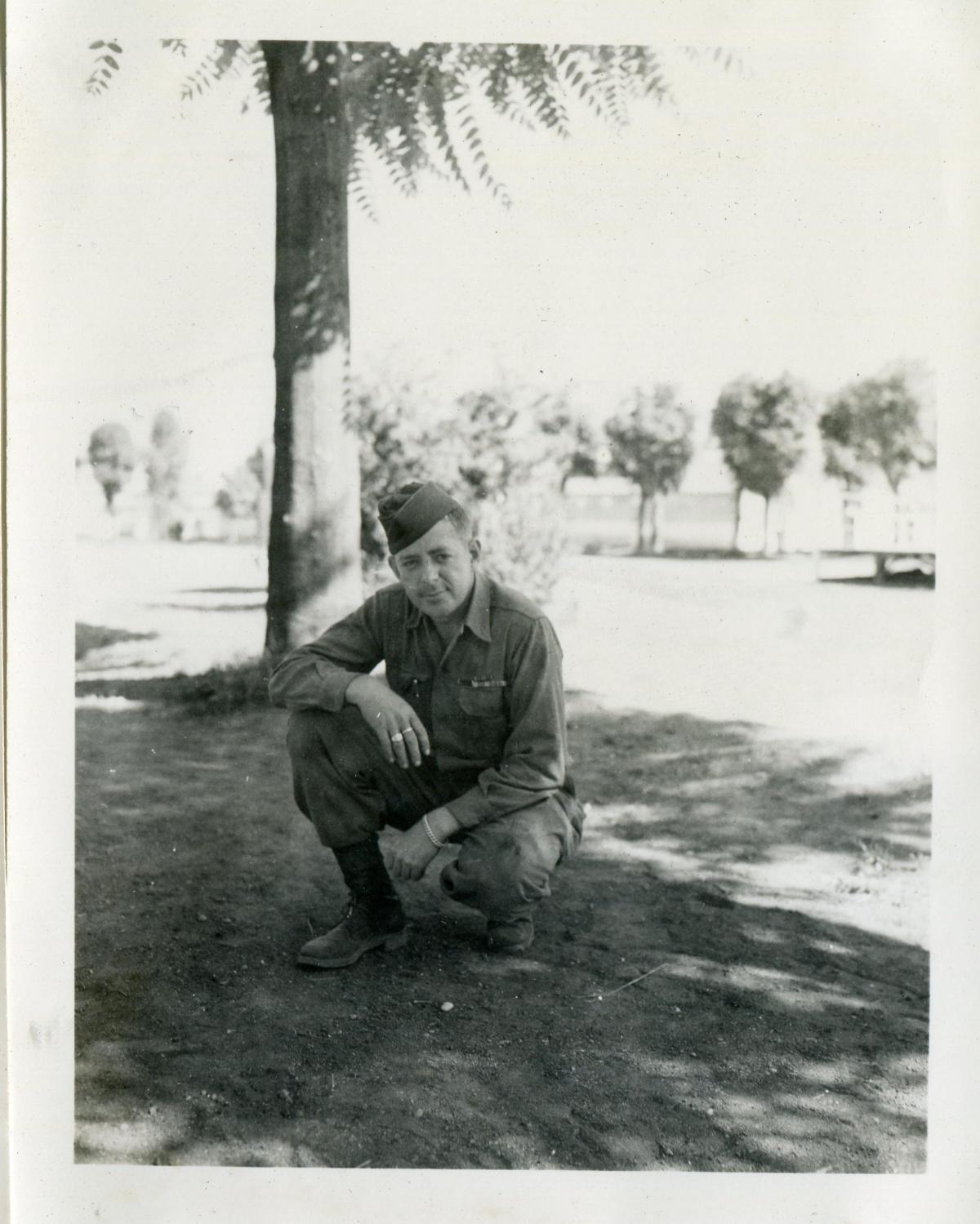
Note from Lucille after O.G. passed
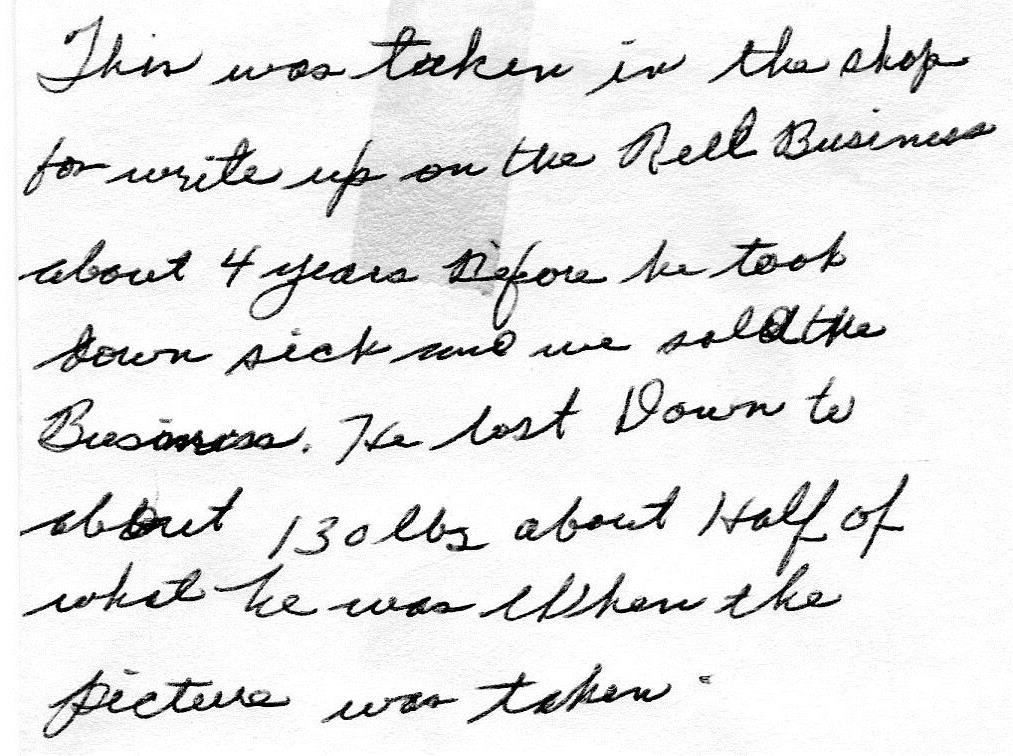
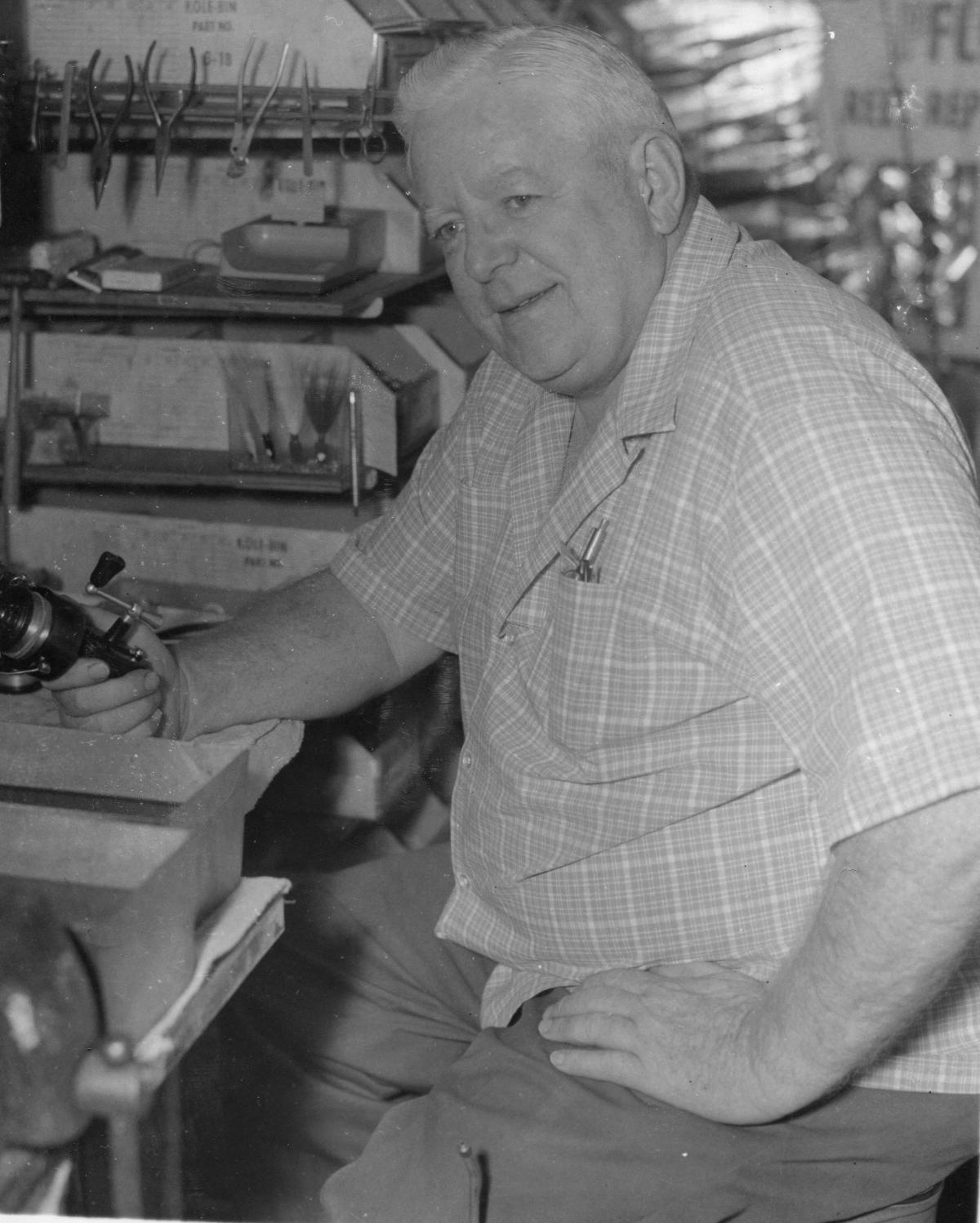
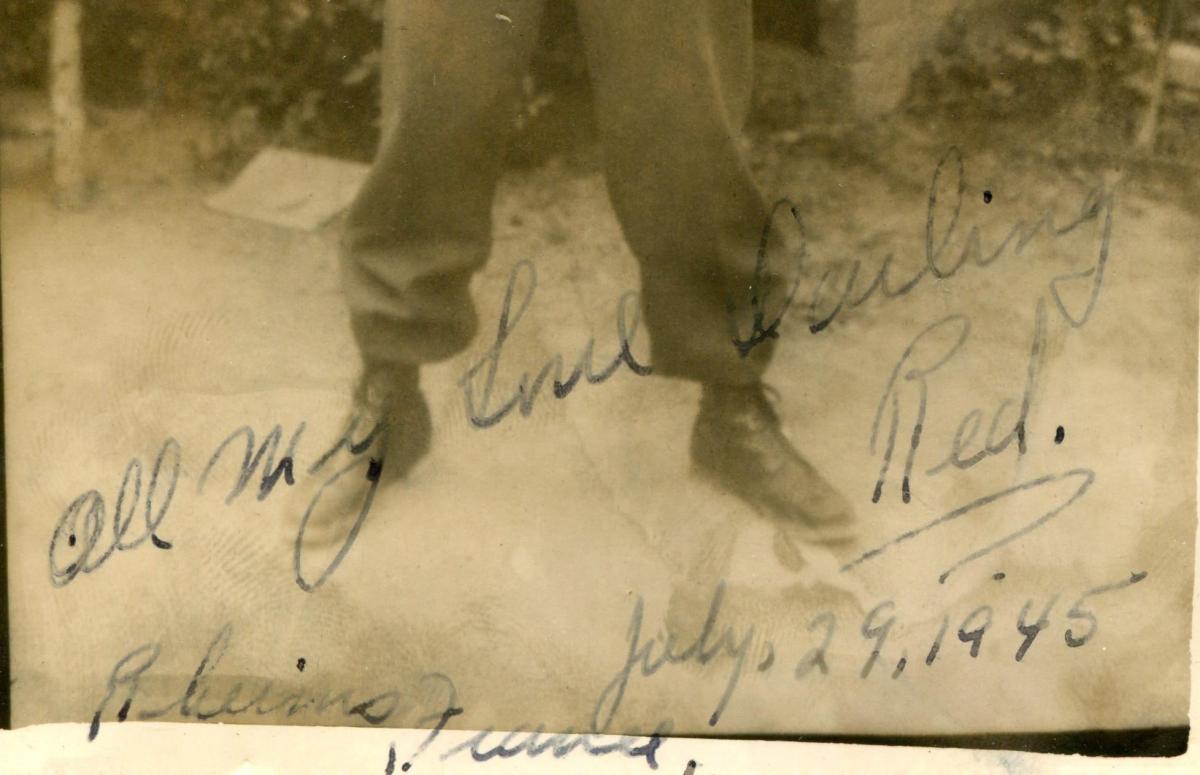
Sounds like such a wonderful human being. So nice that they remained friends after the war. Wonderful memories.










